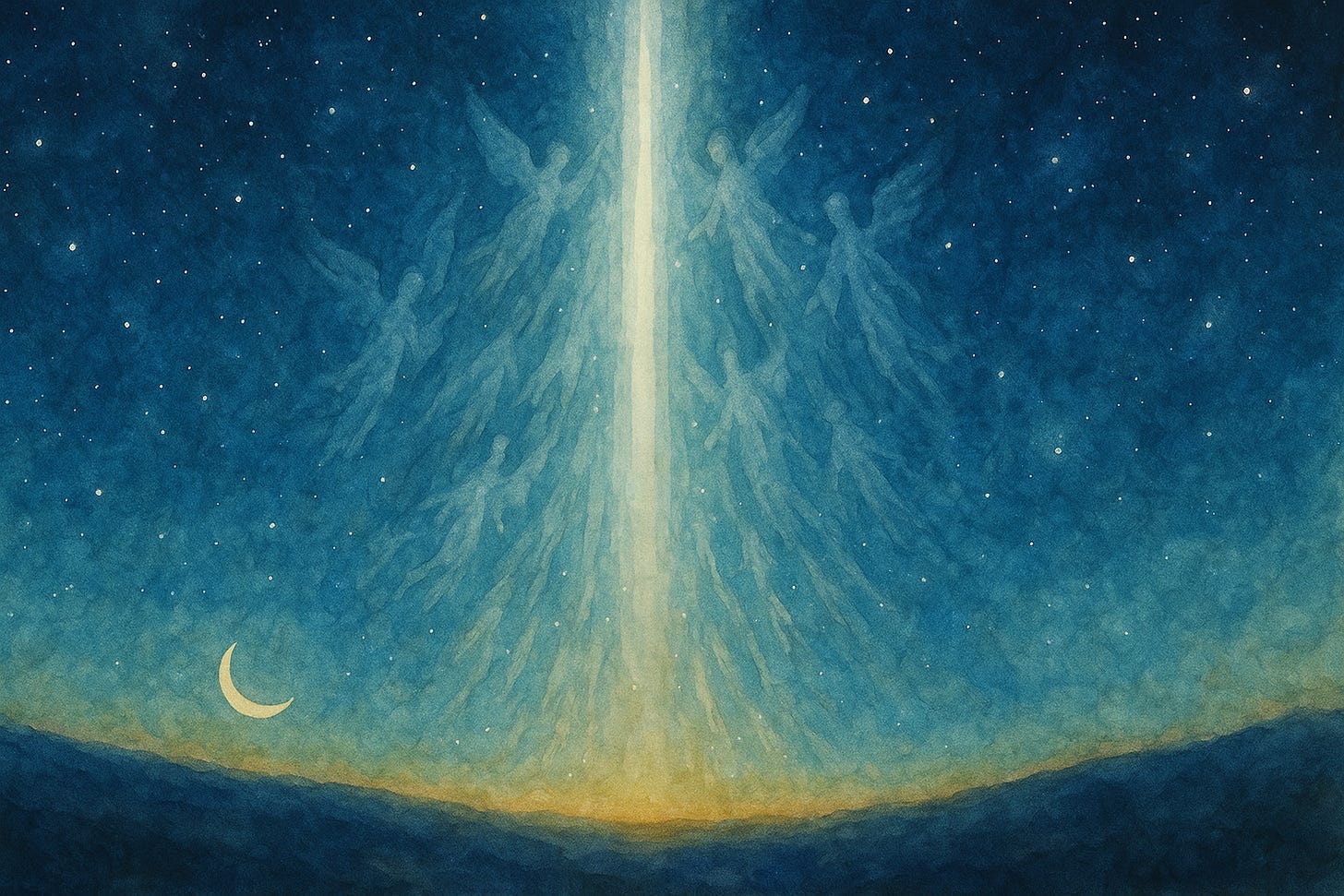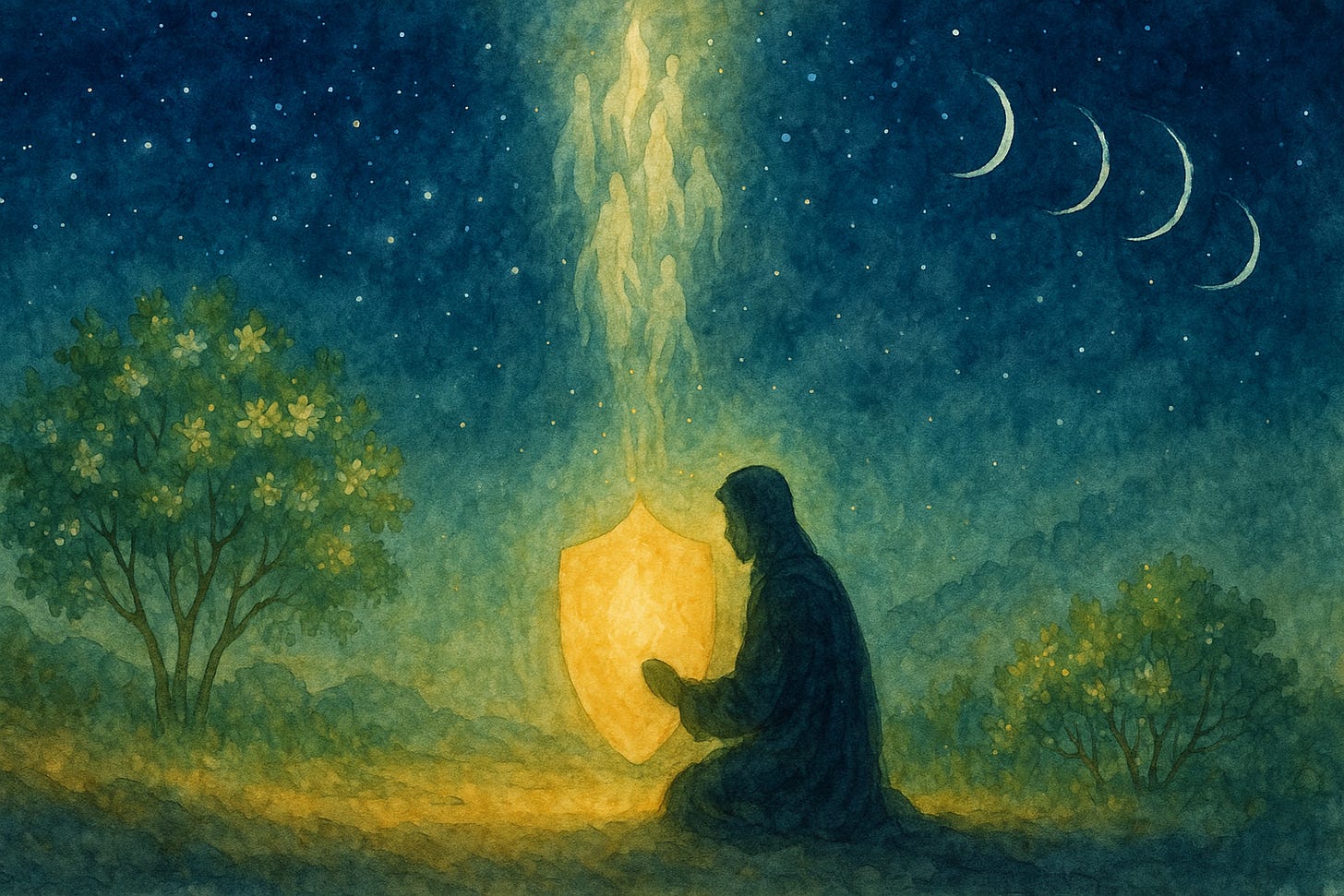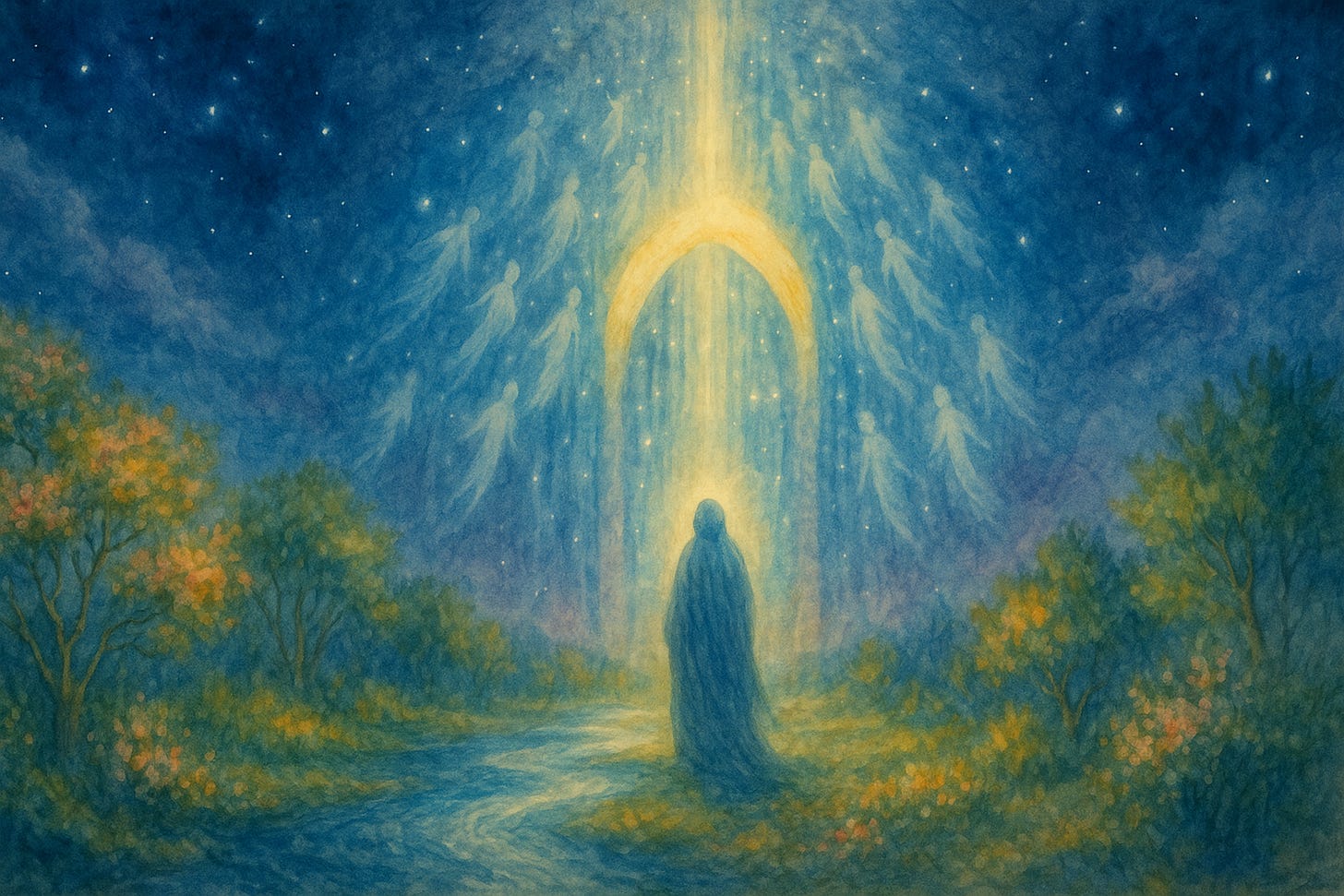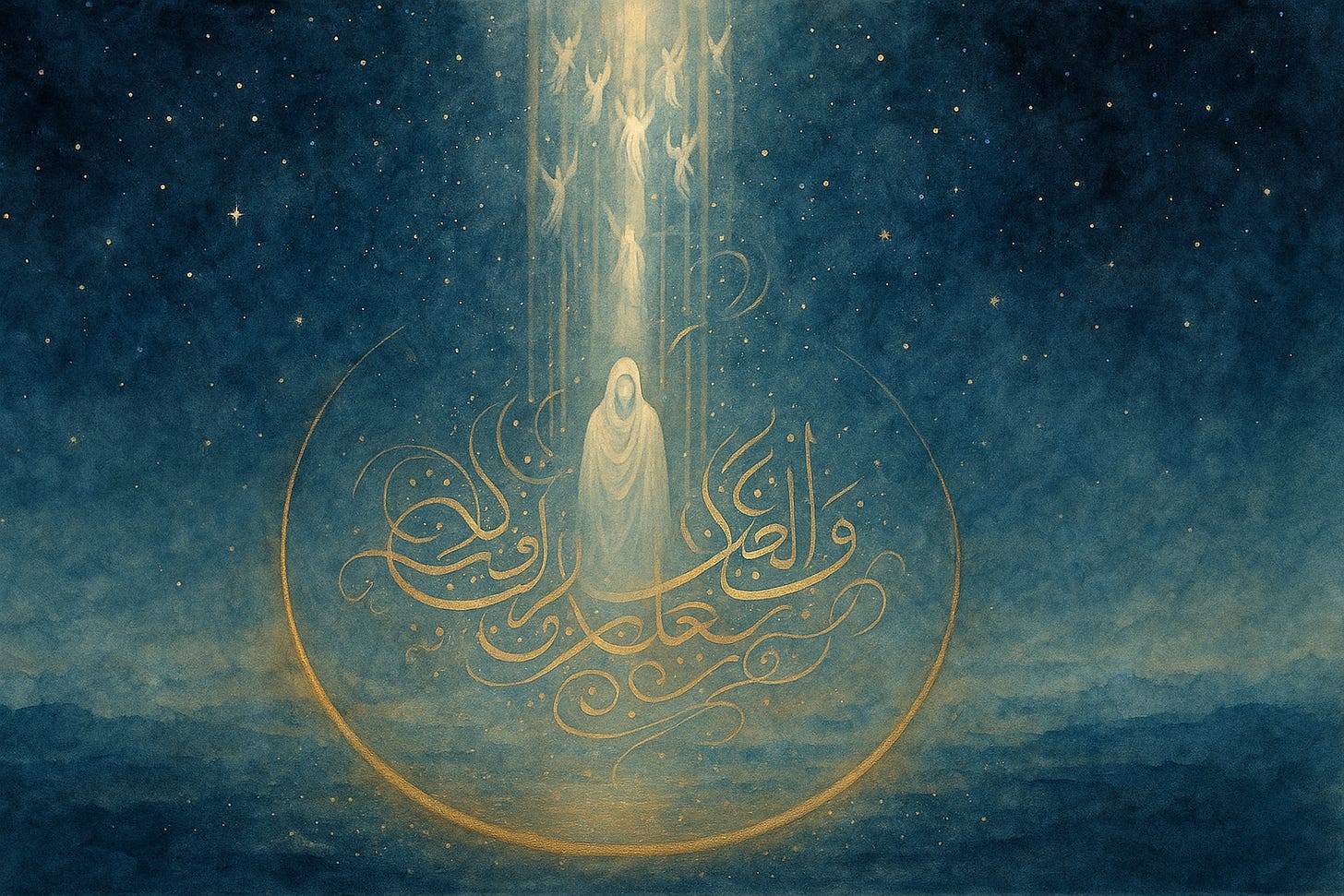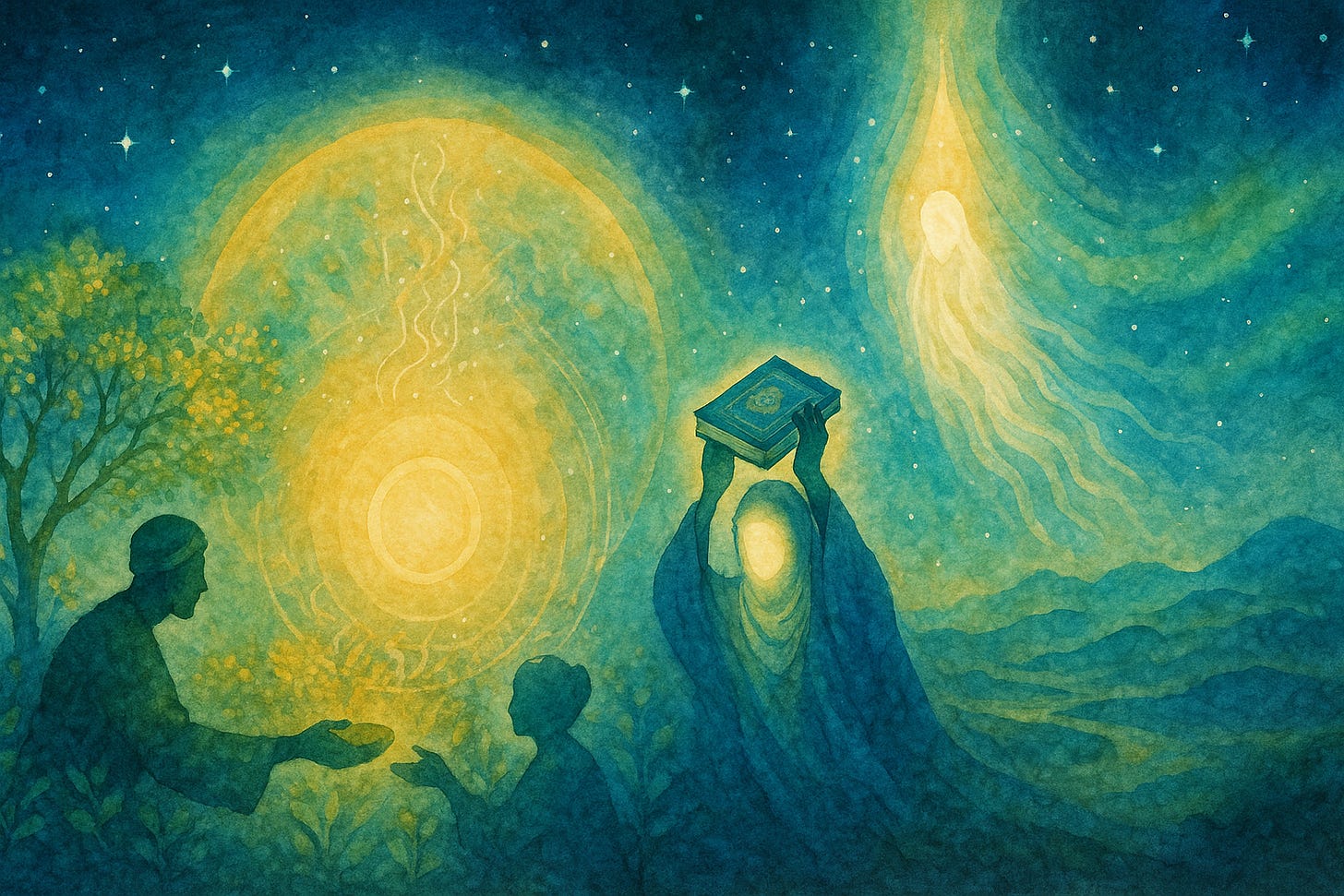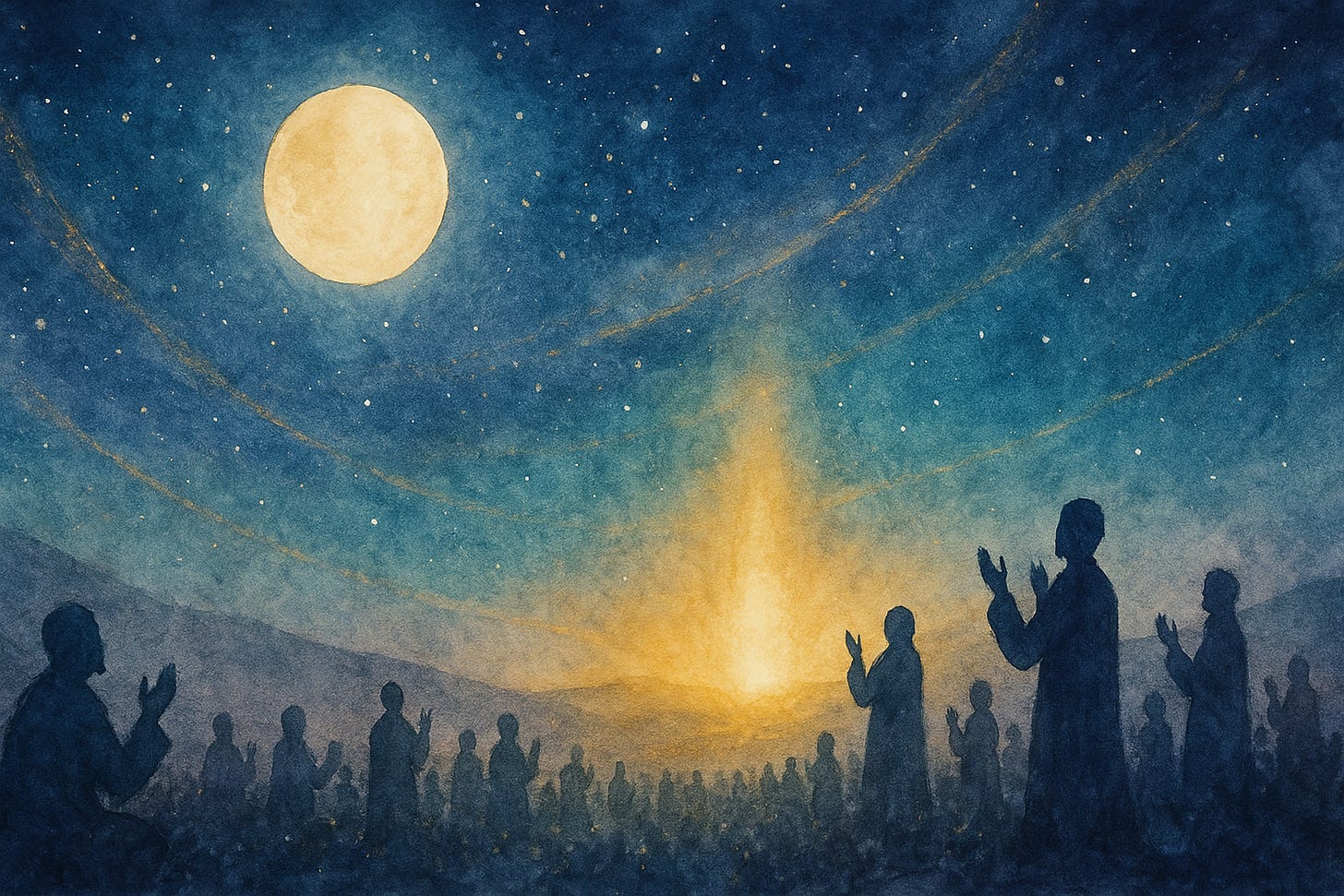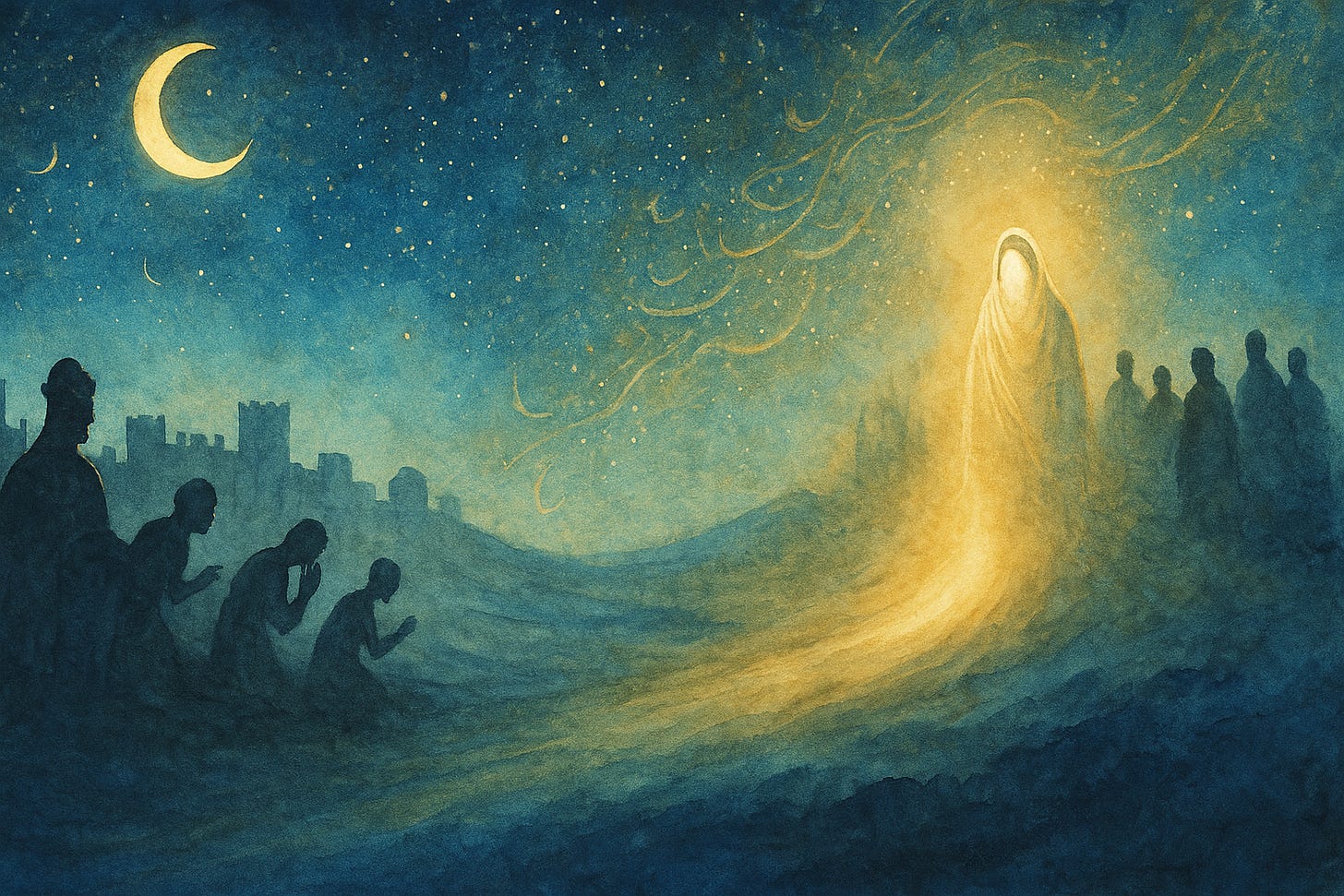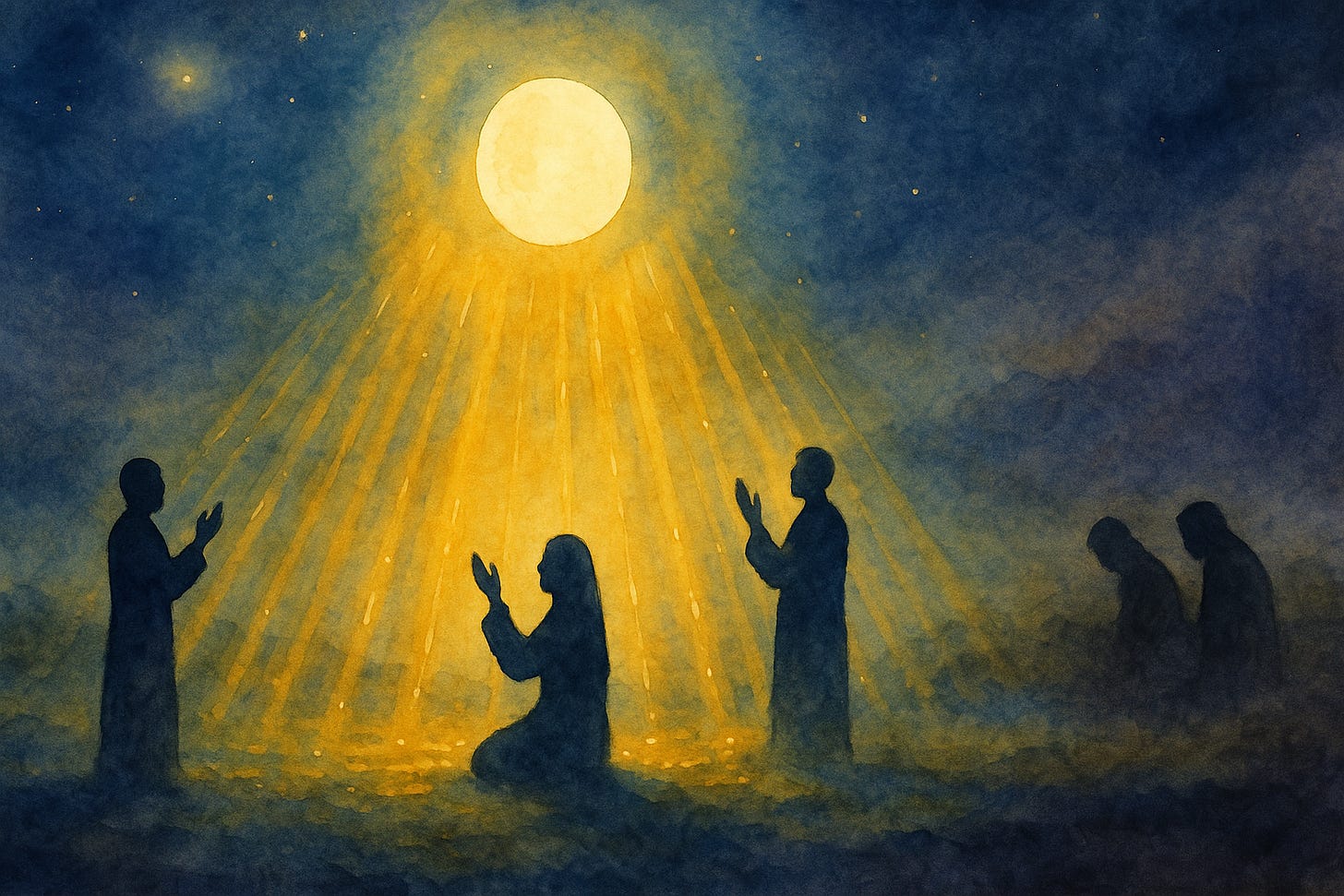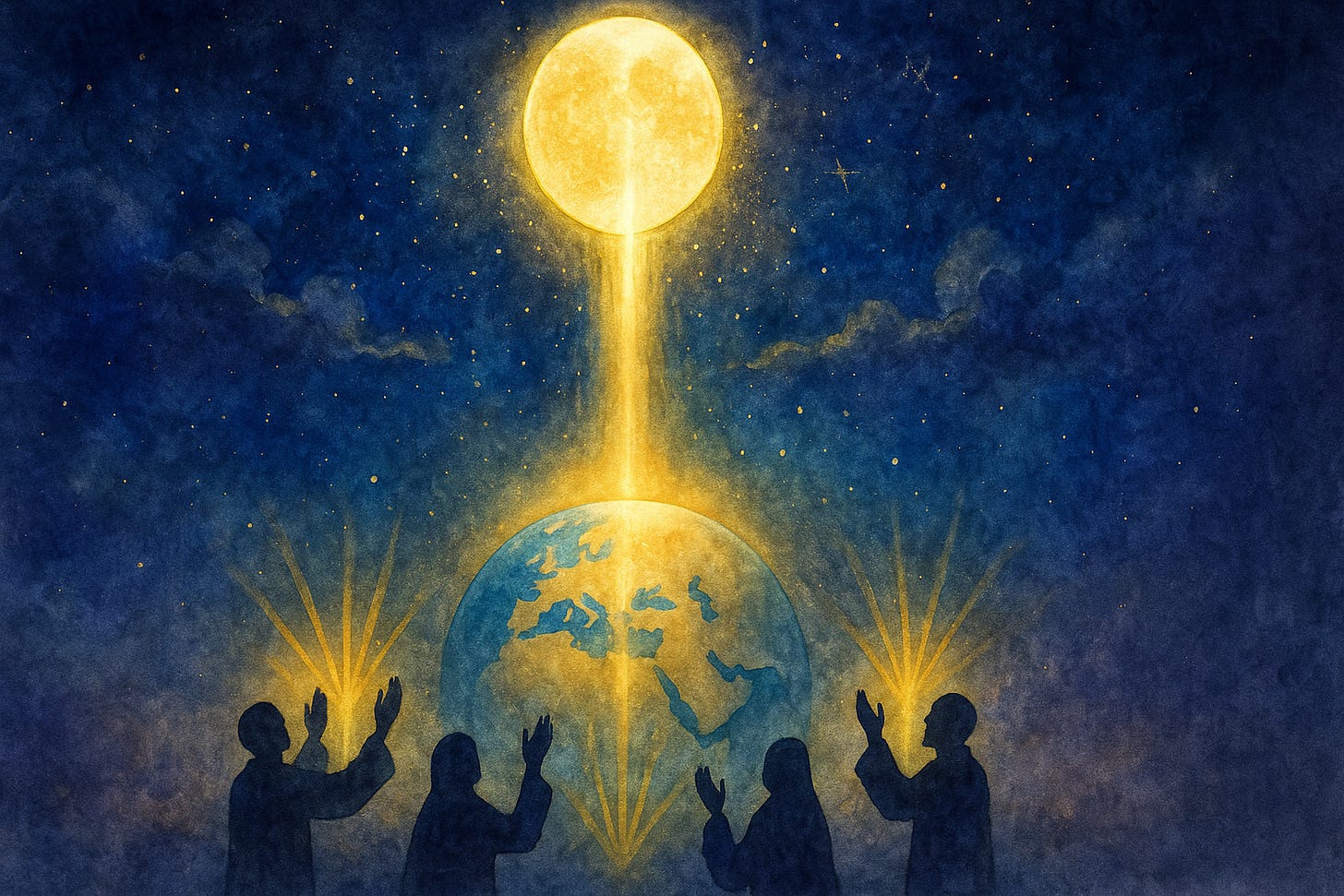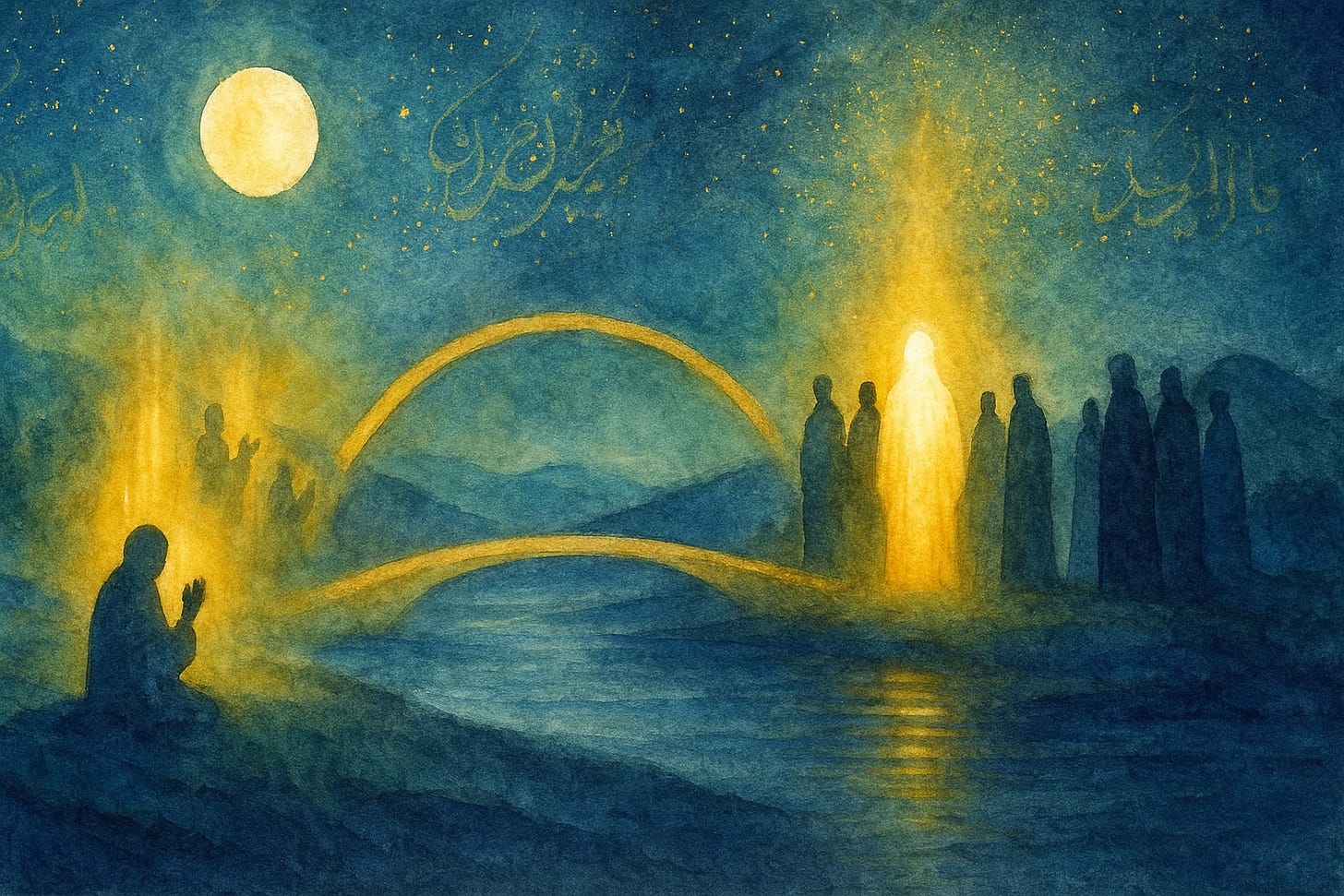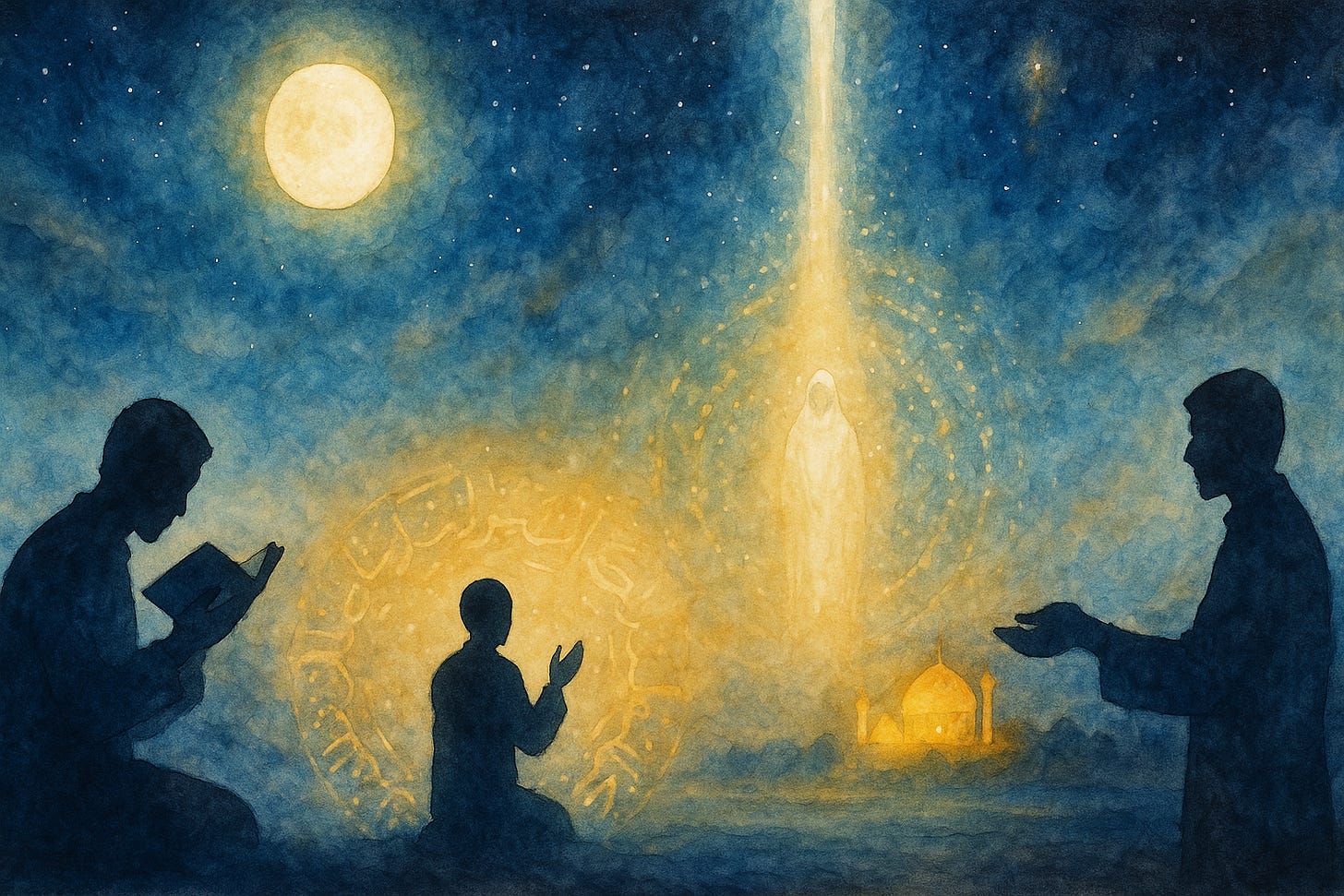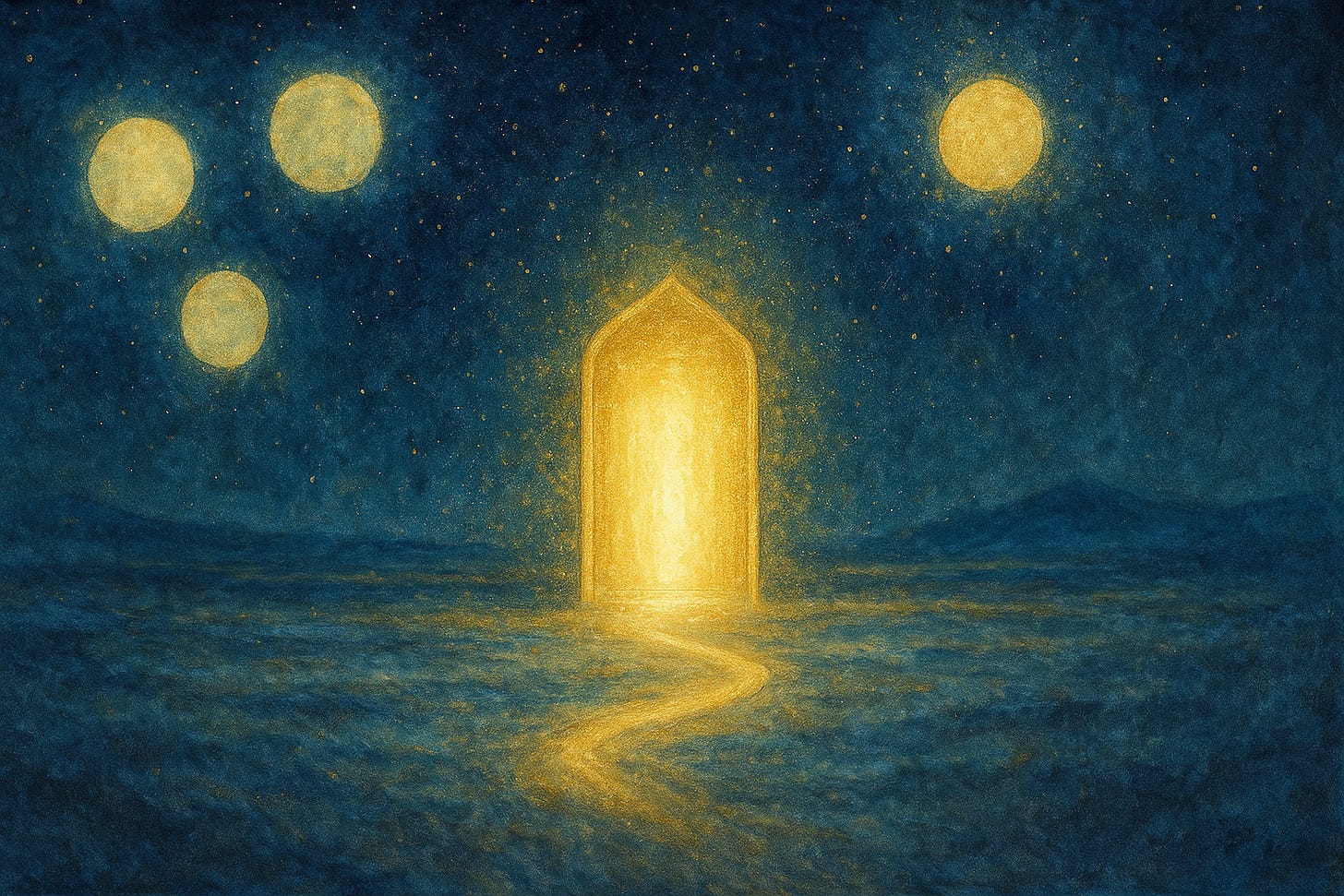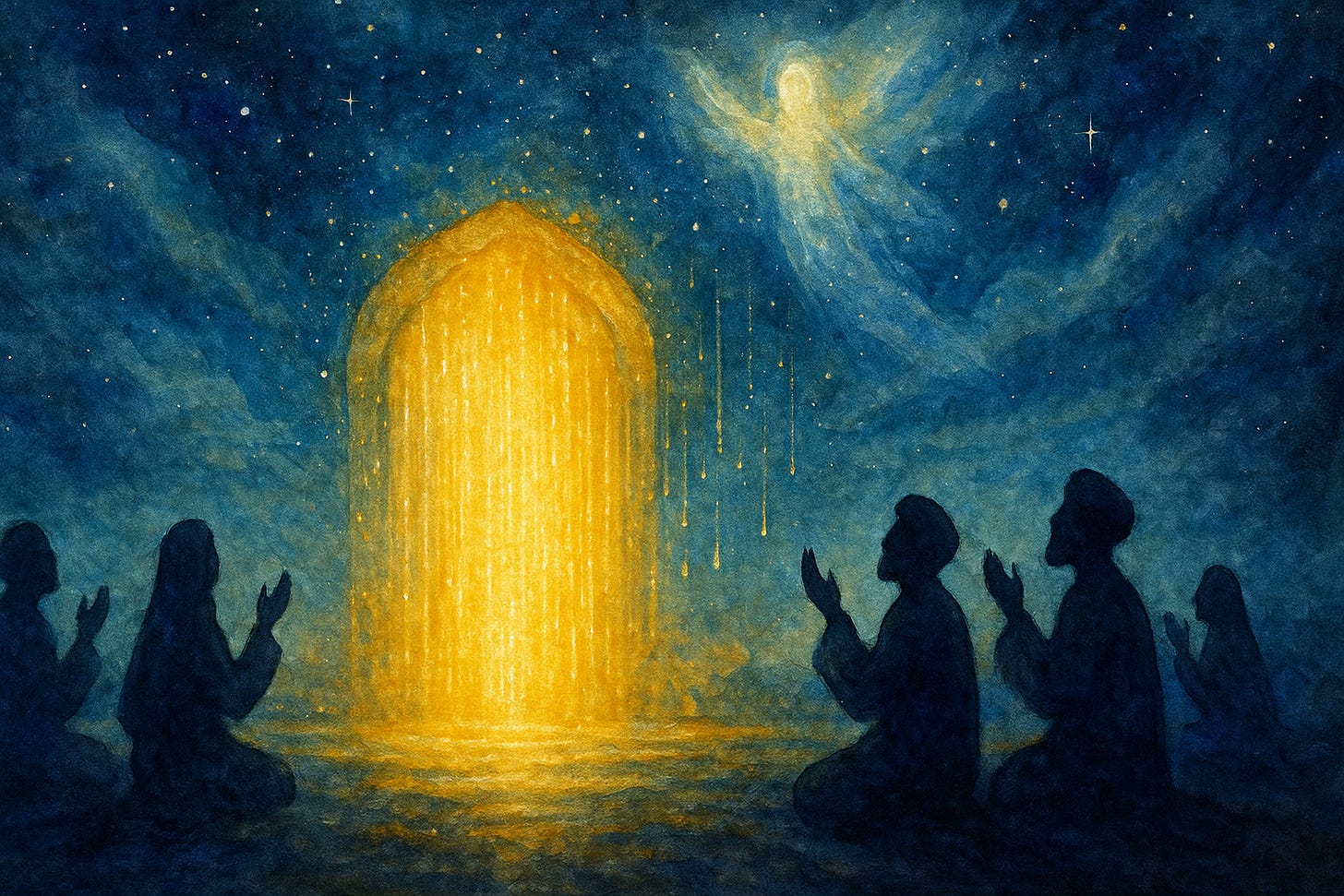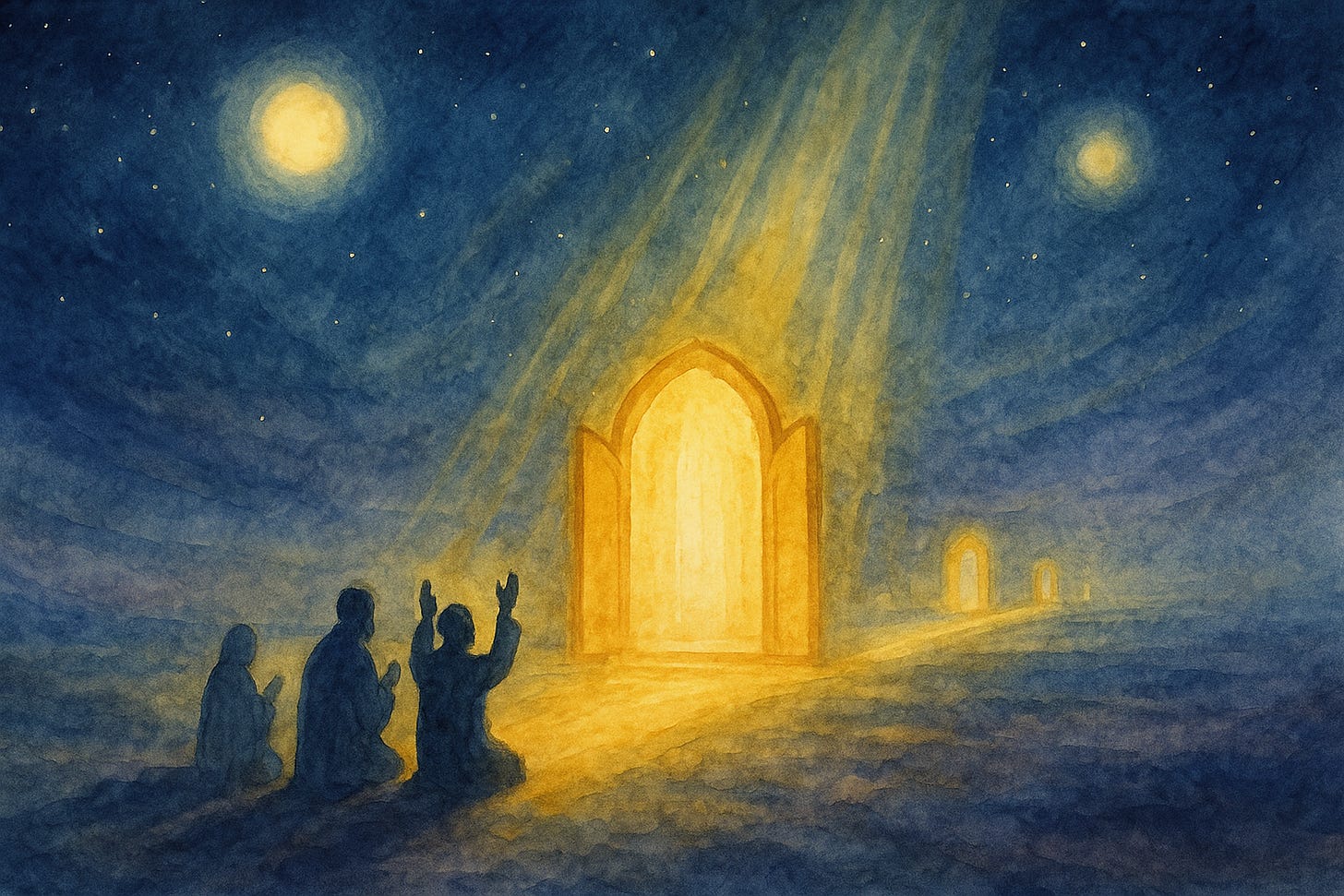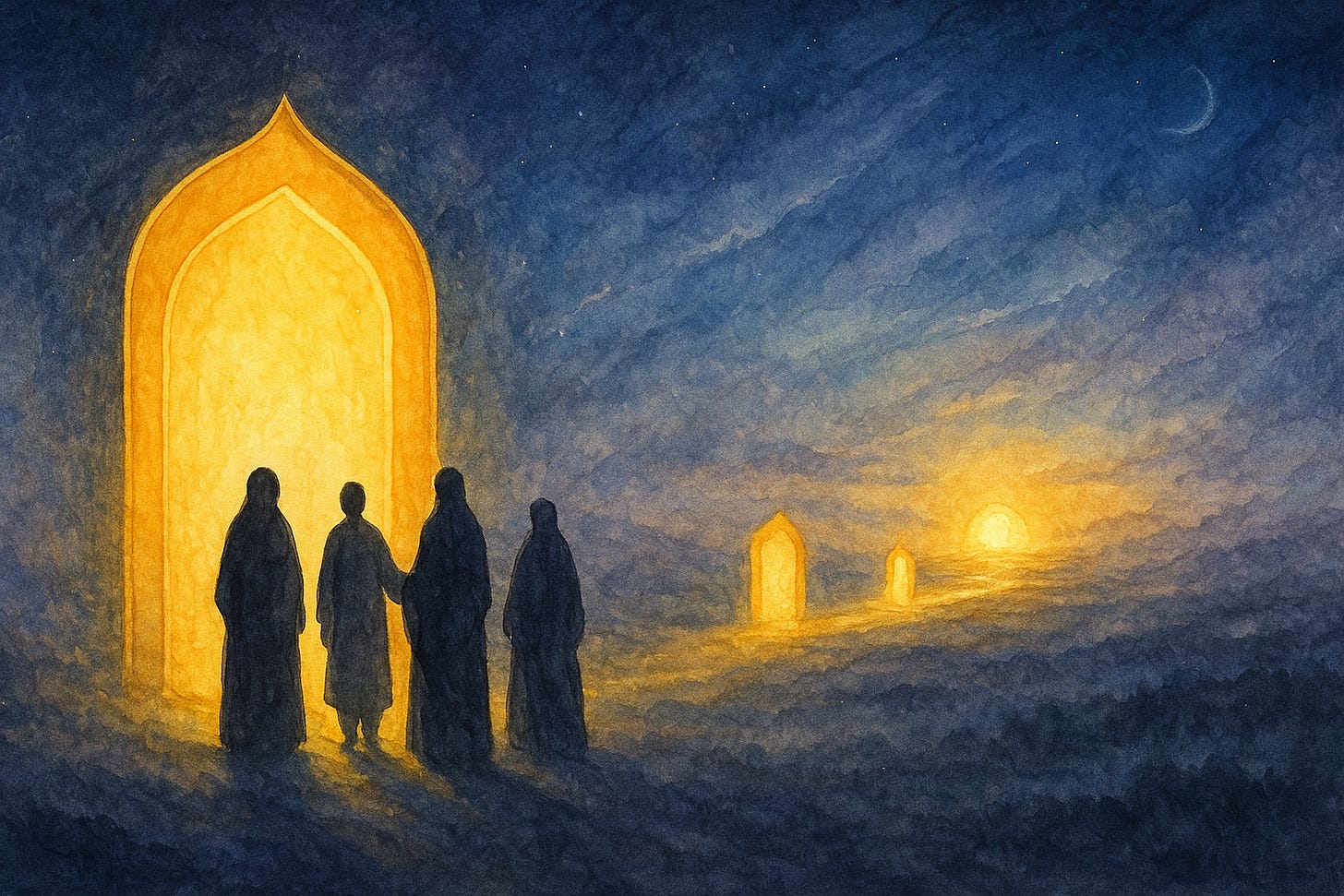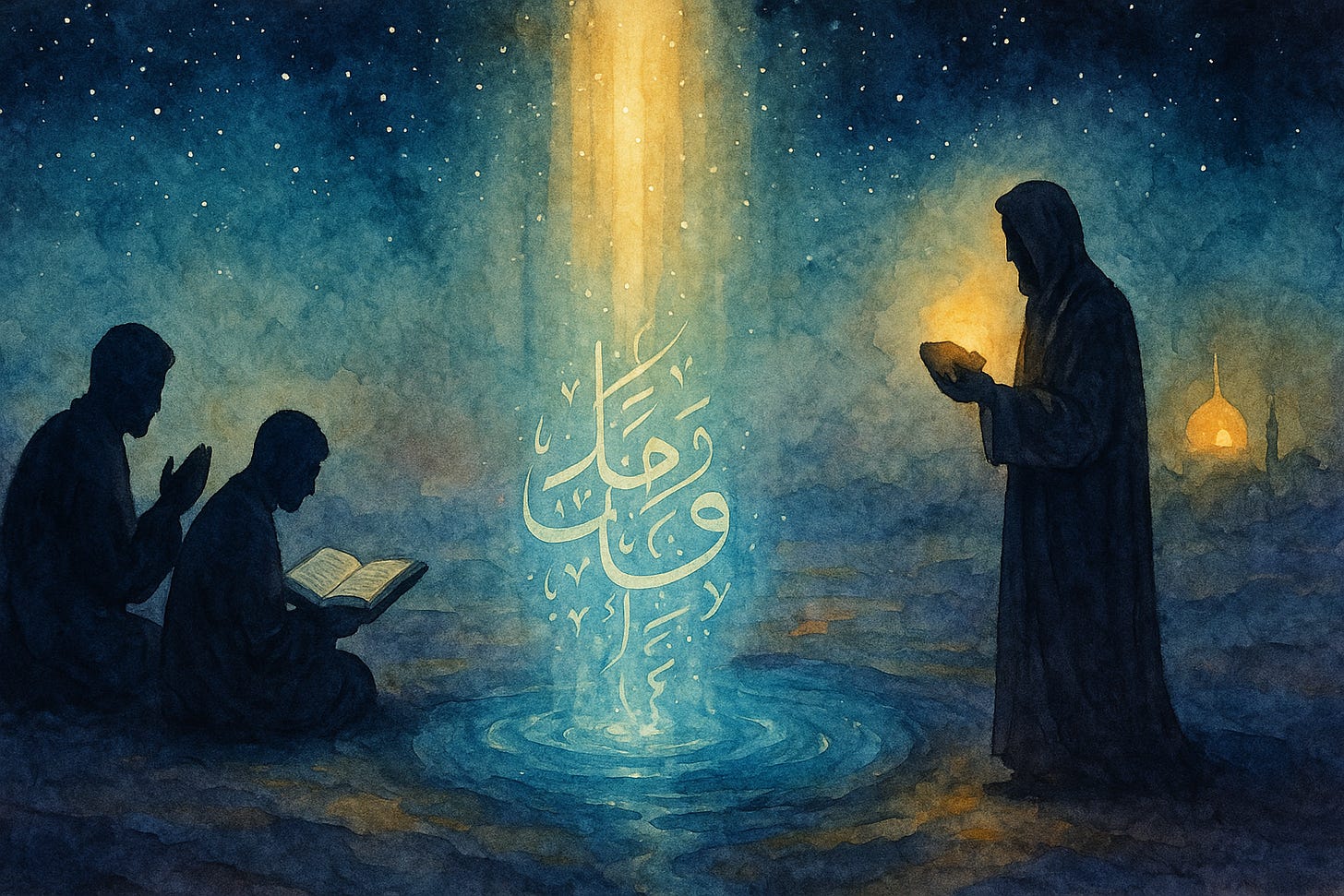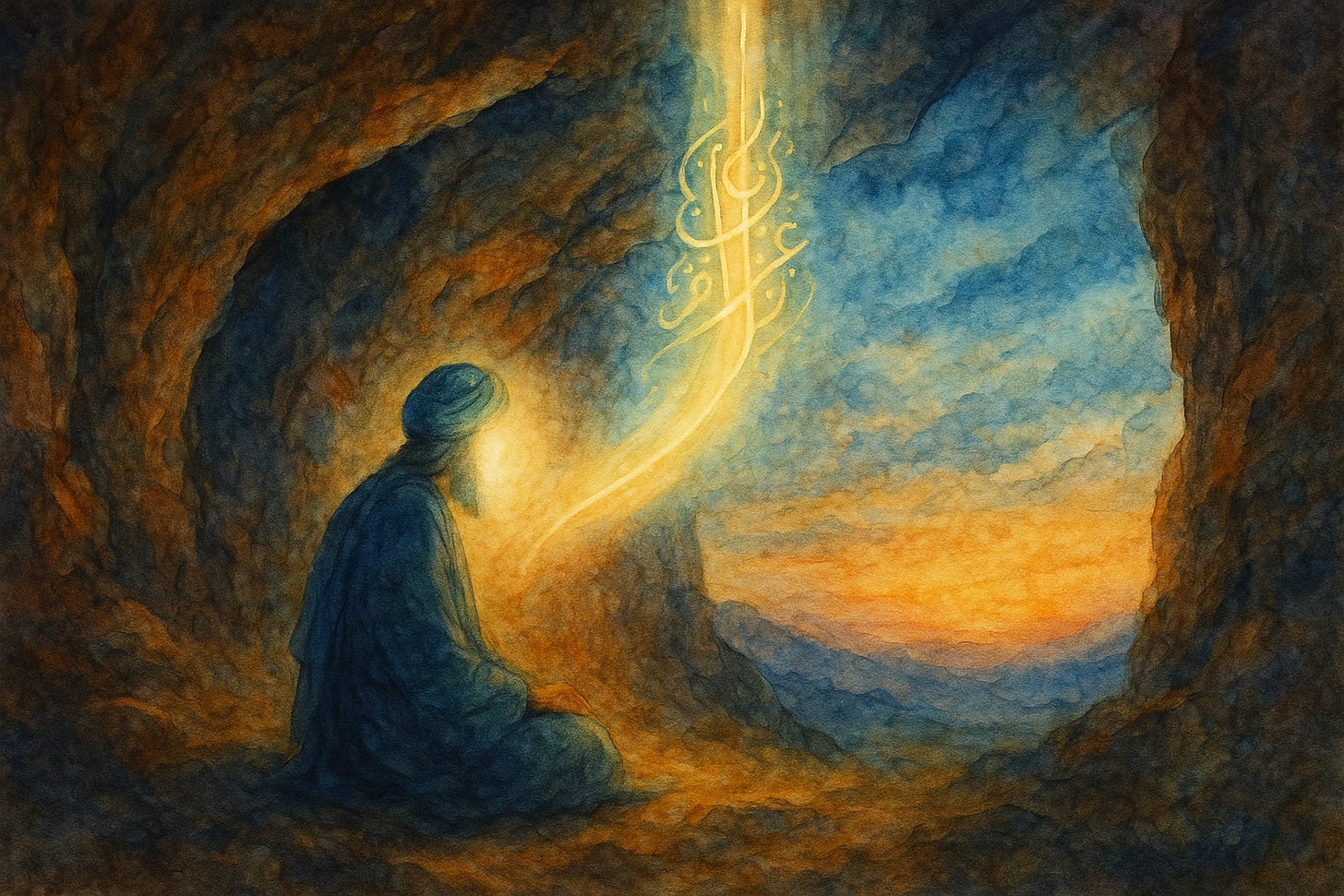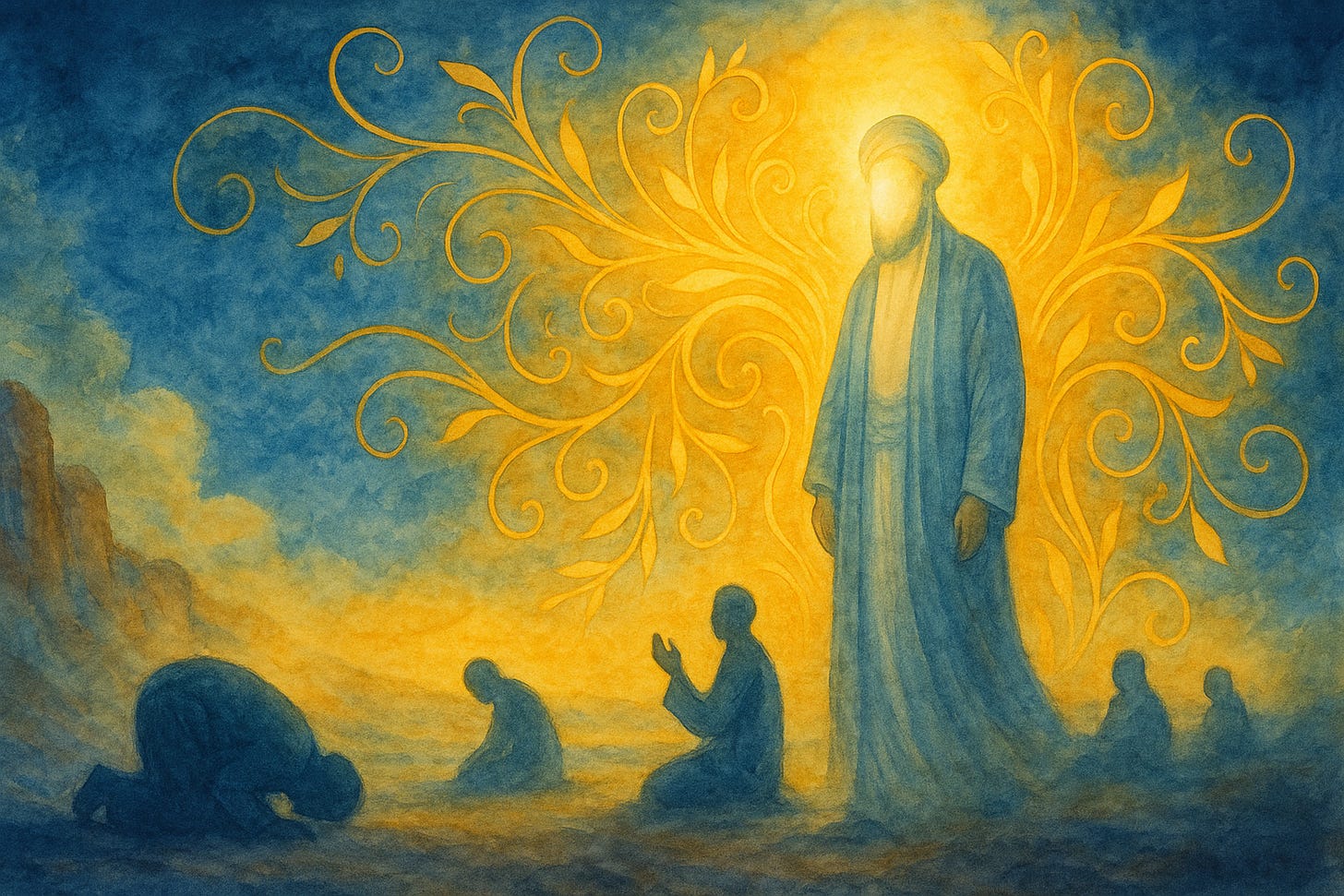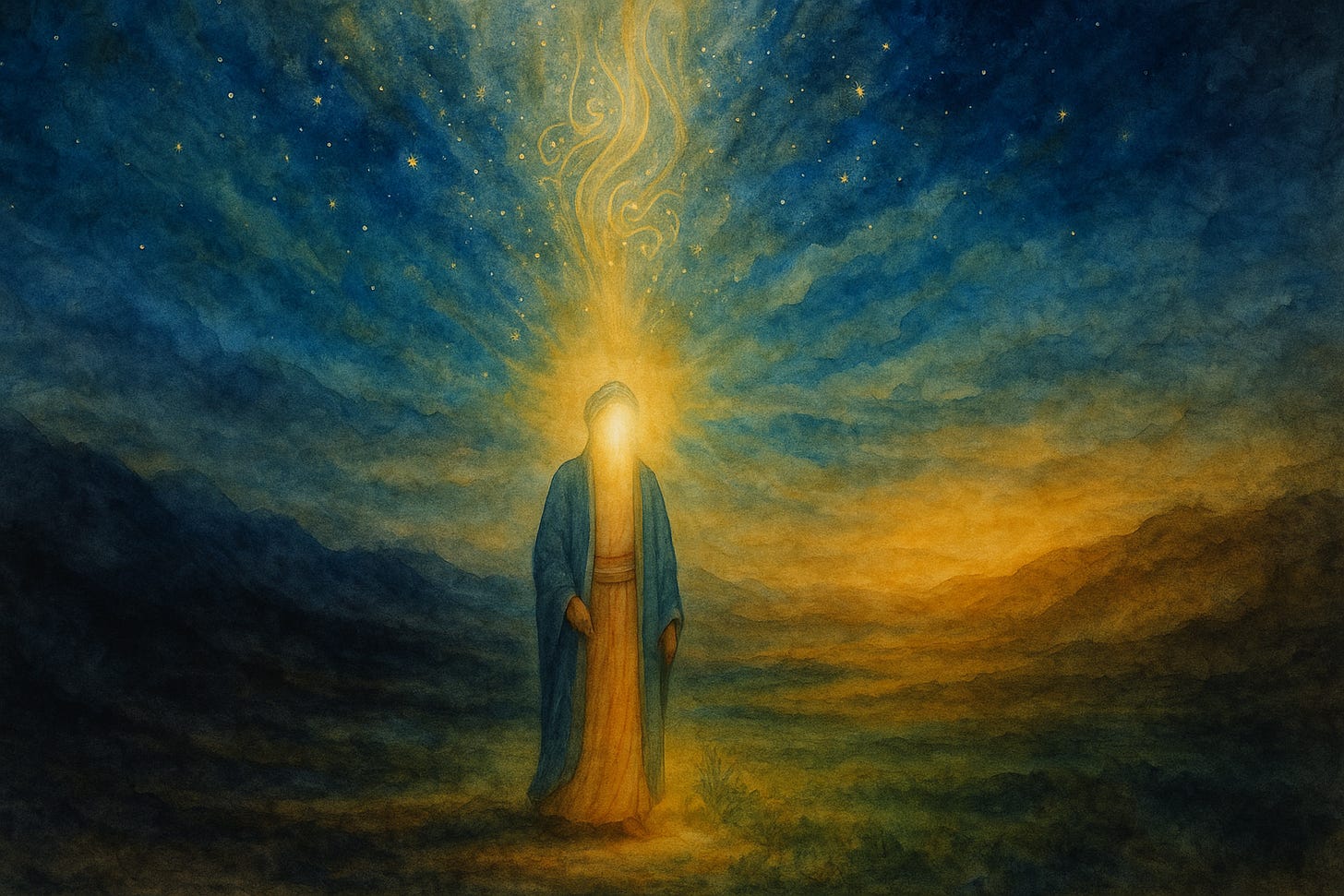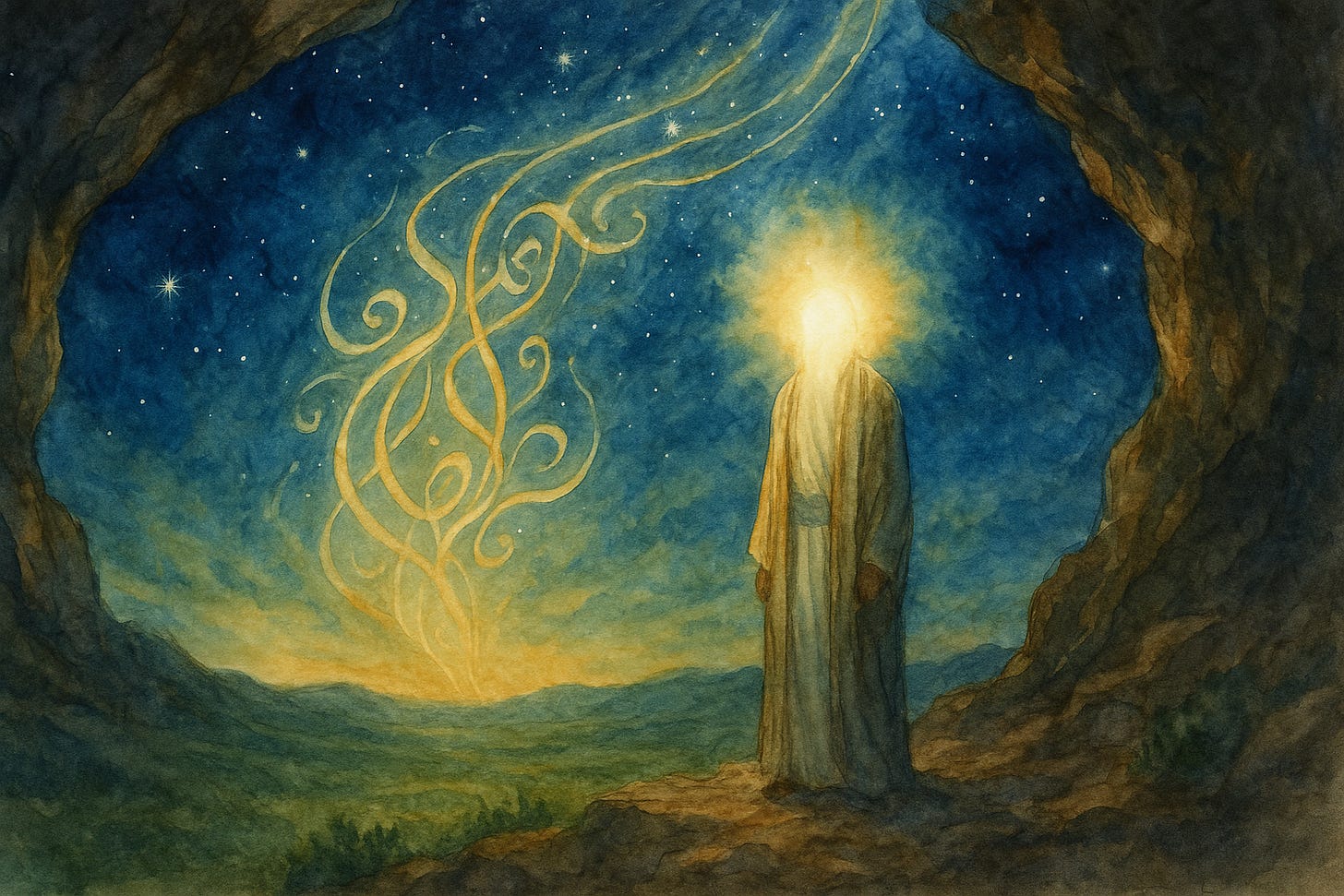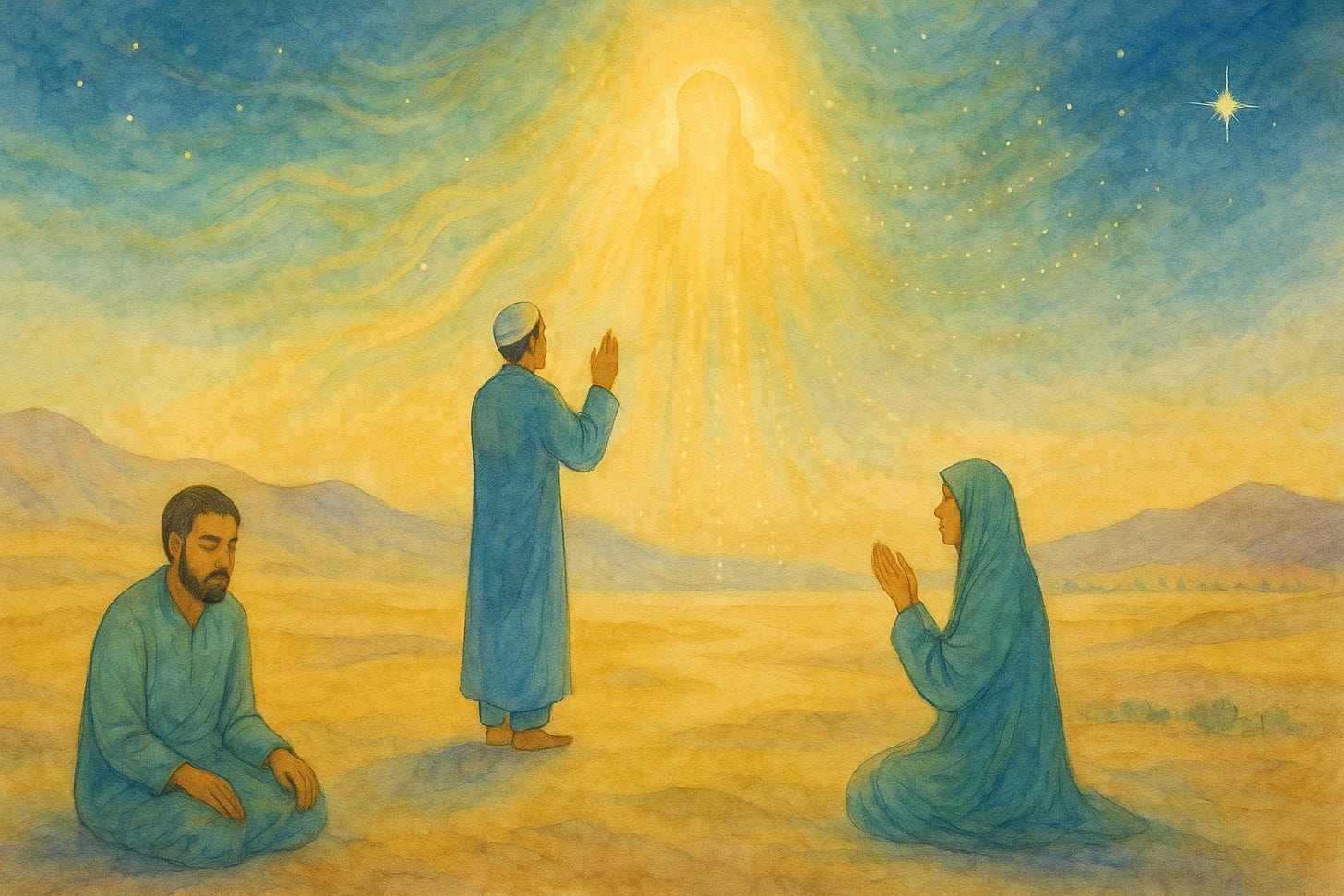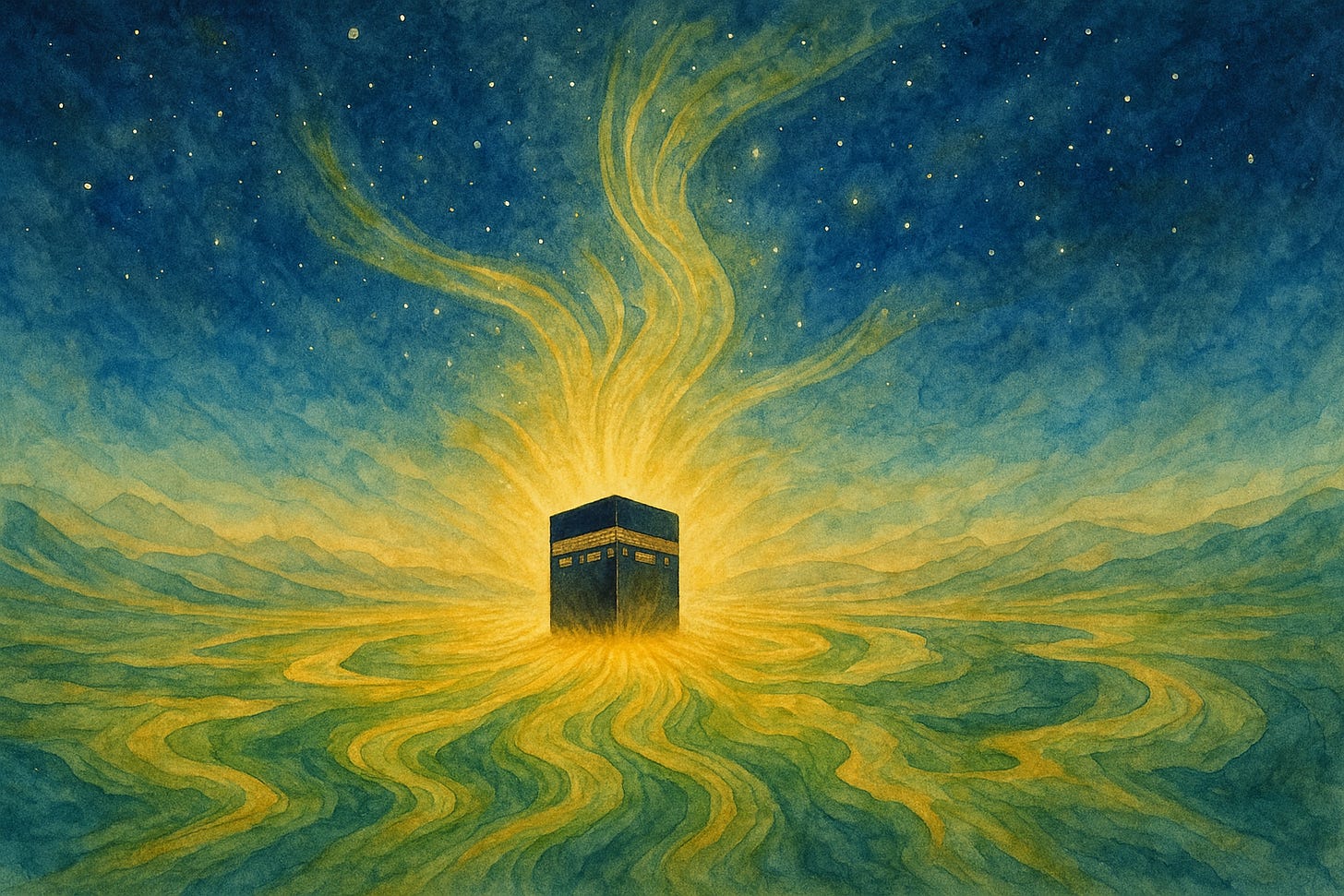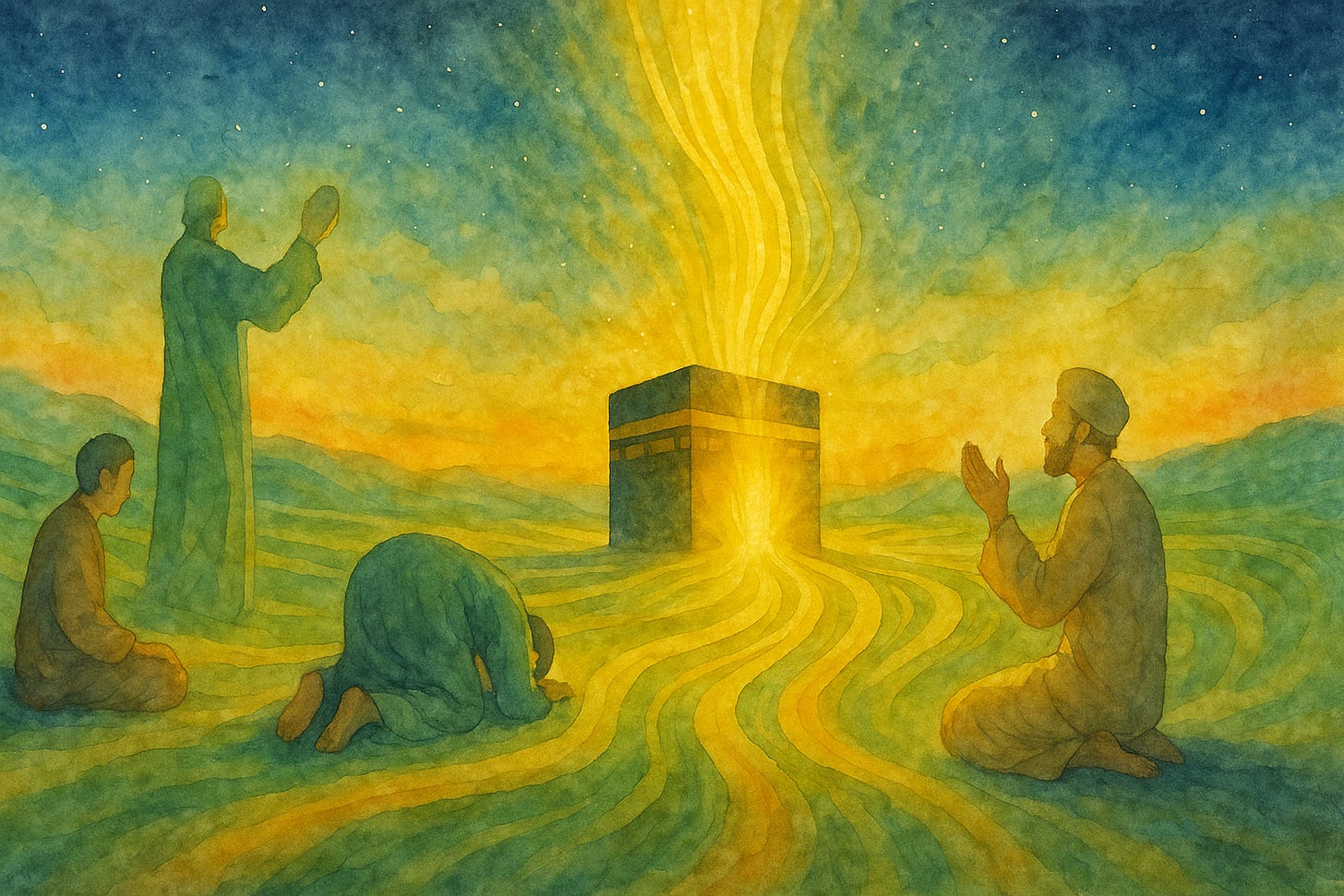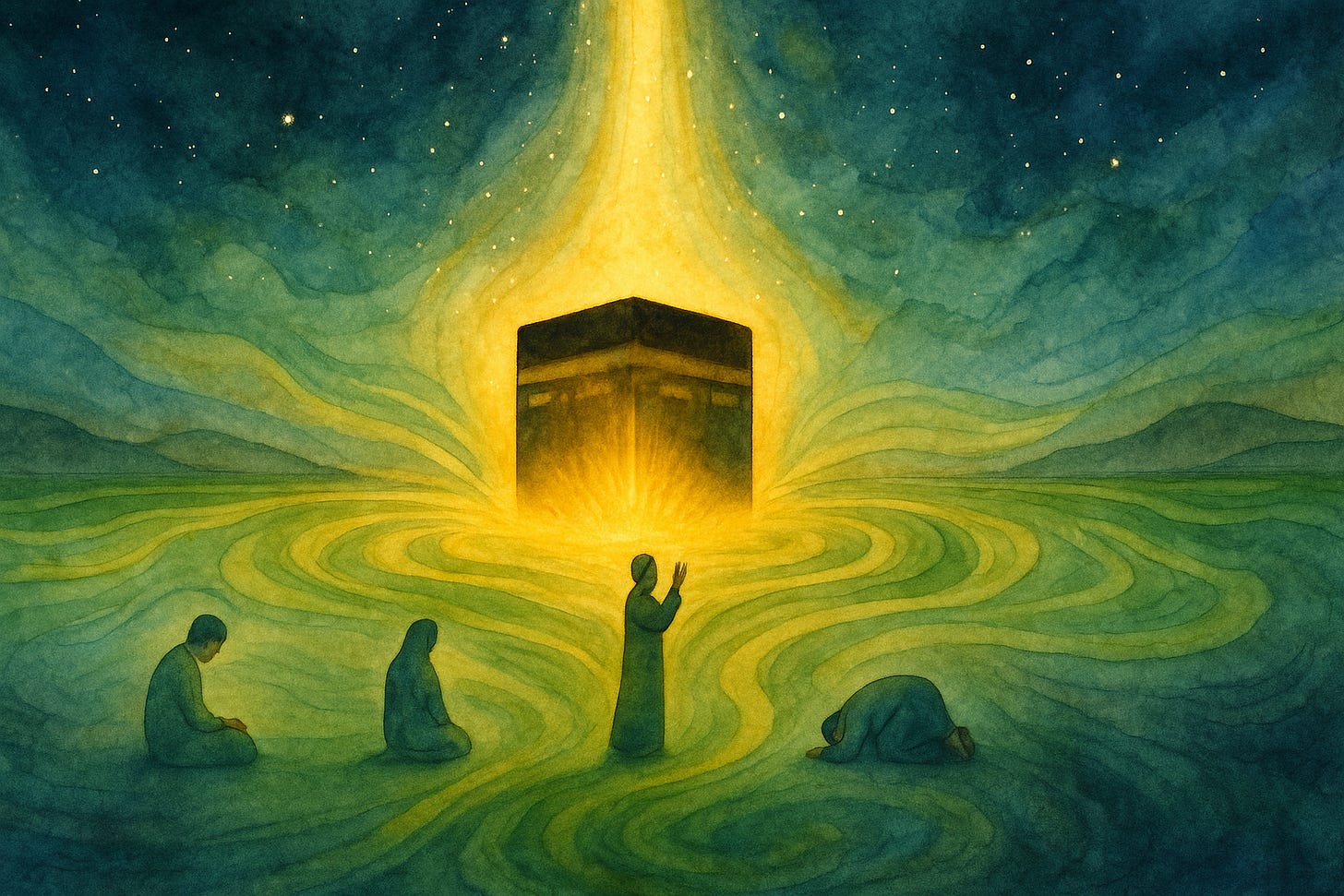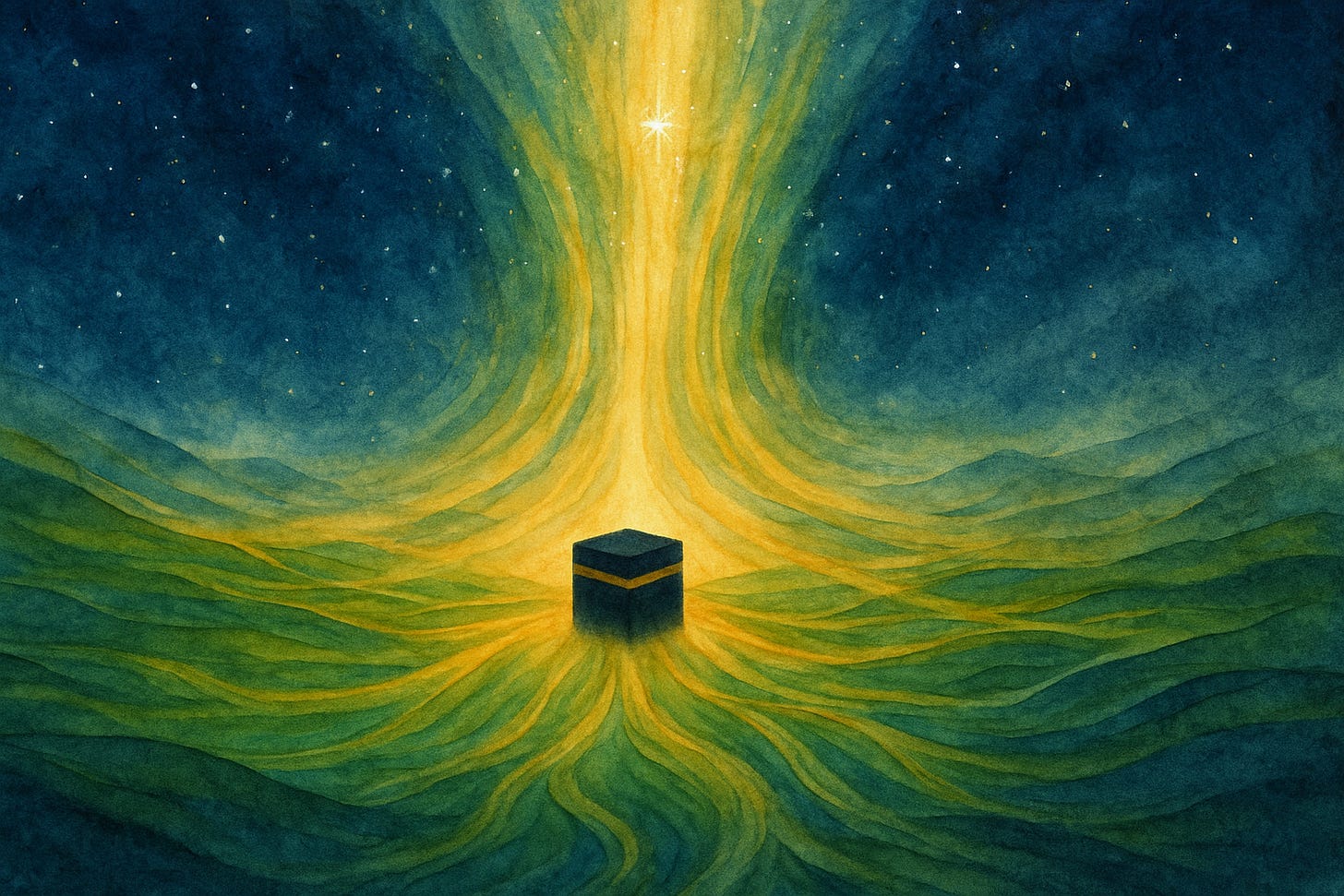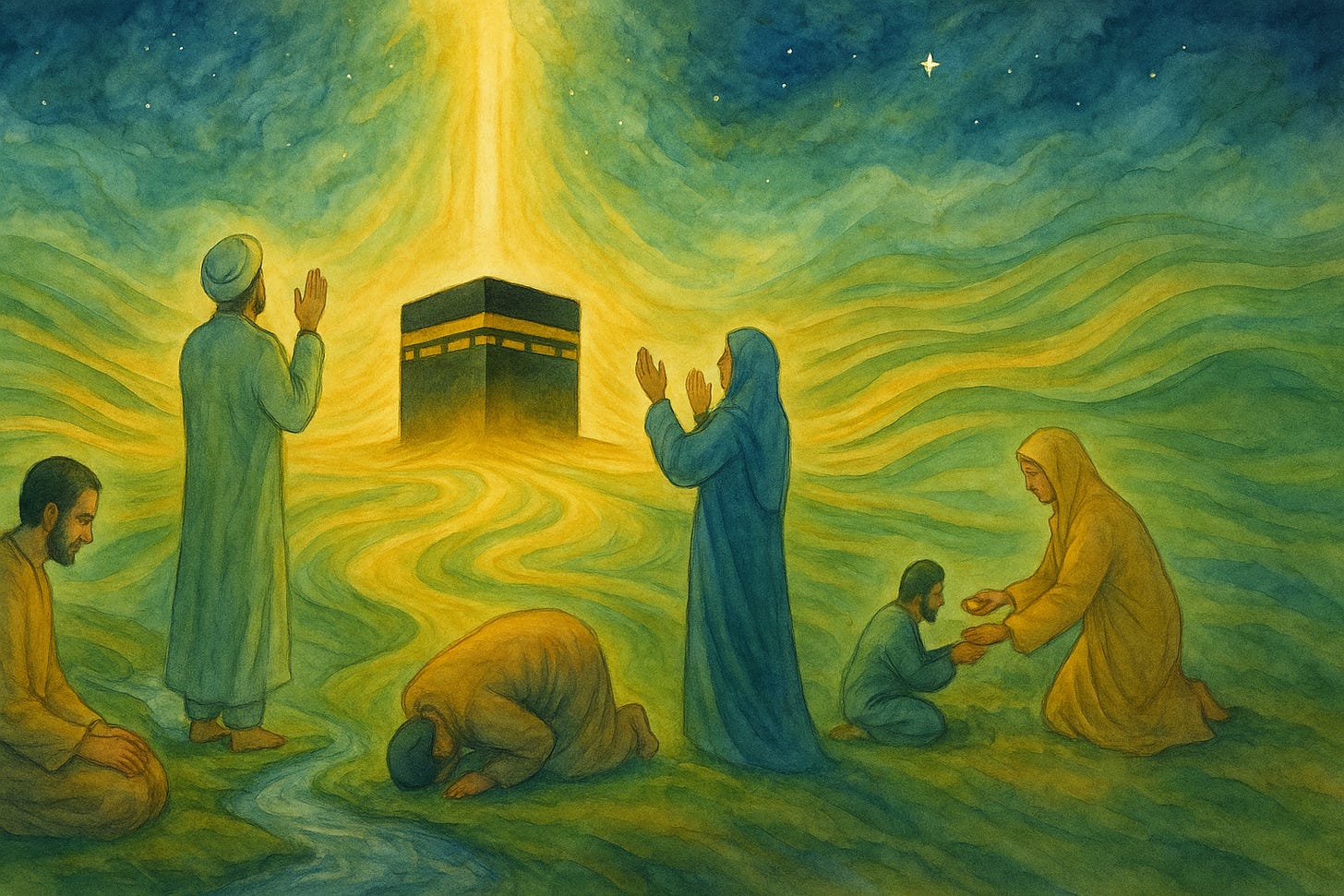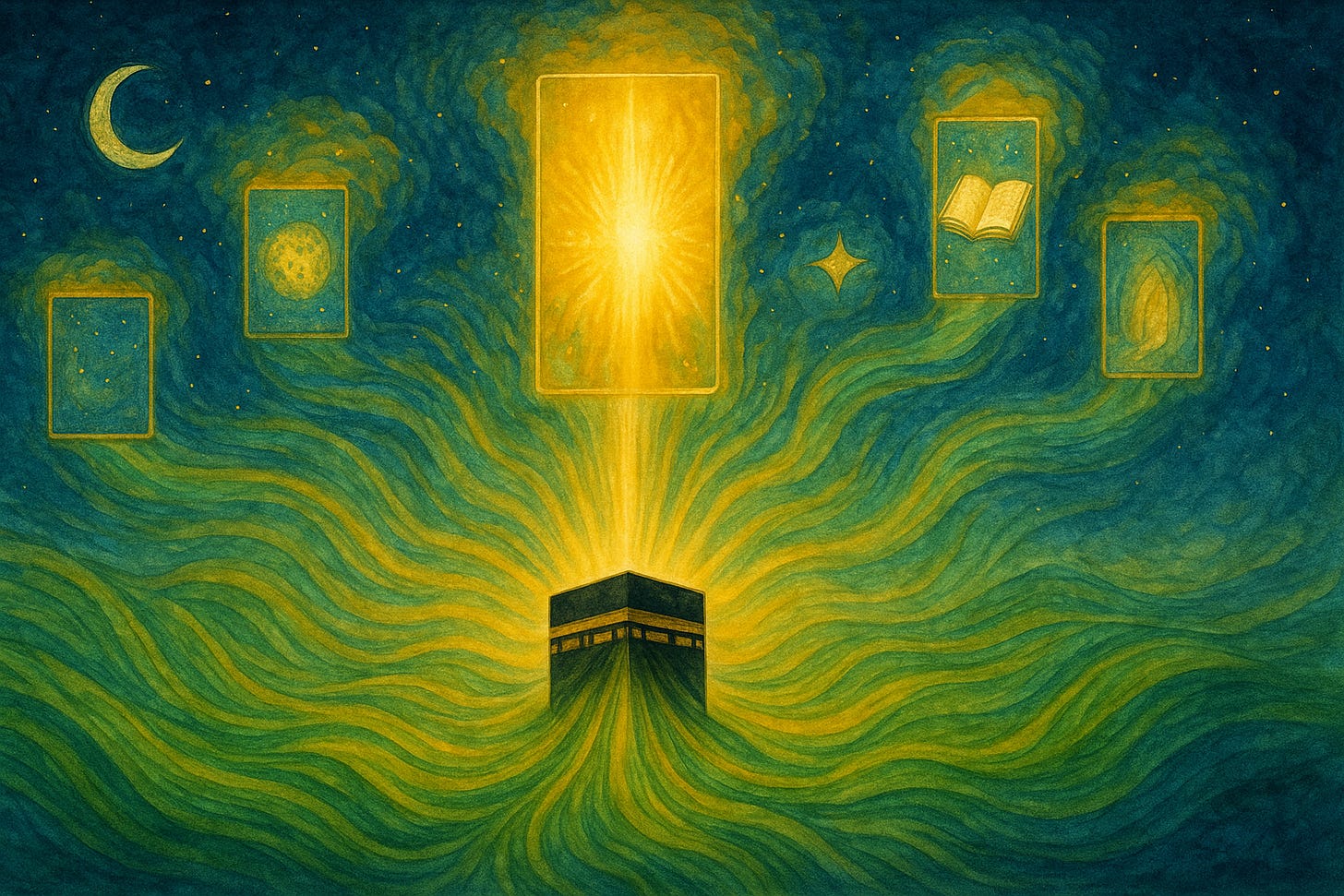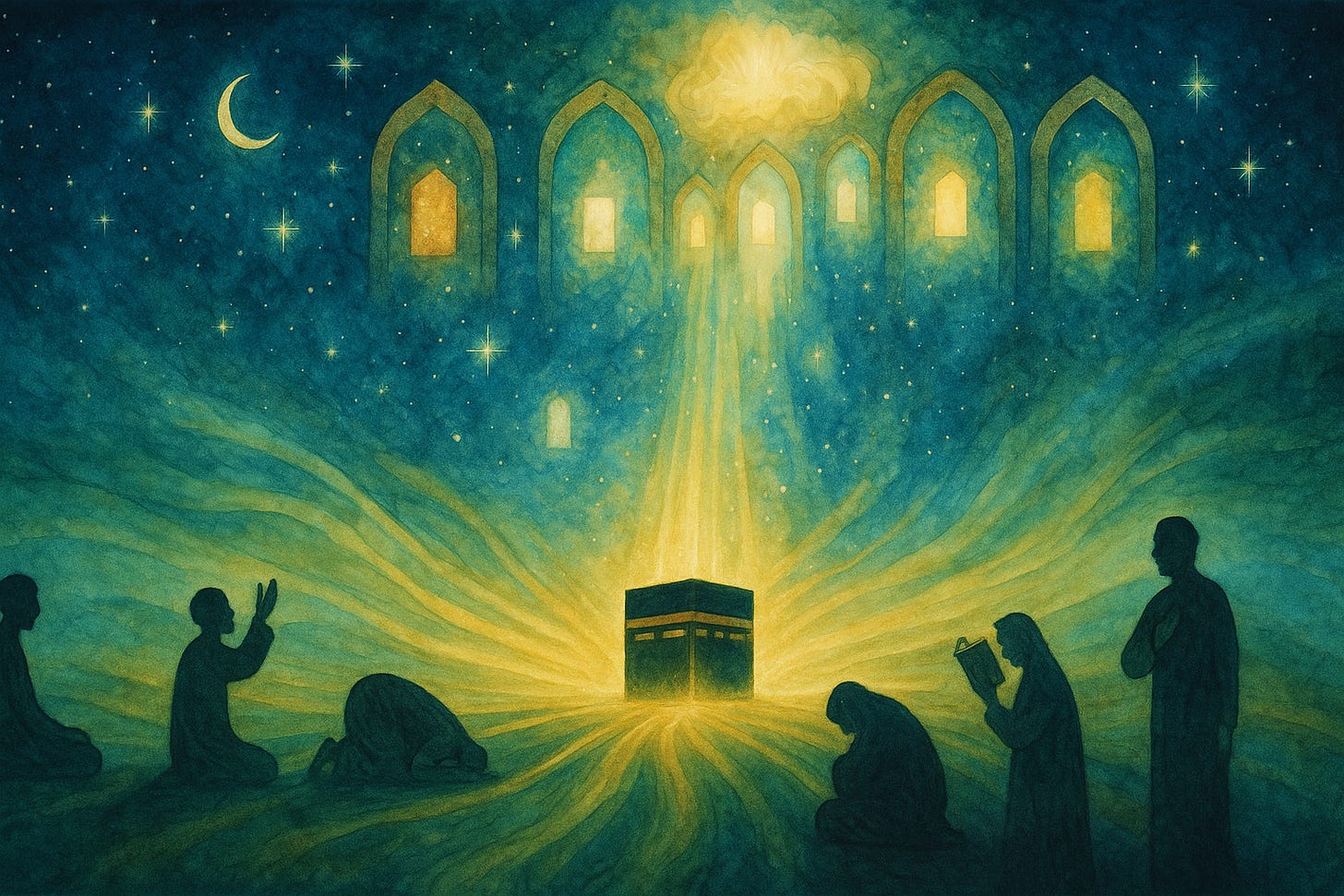[12] The Art of Supplication - The Sacred Windows: The Role of Time - Part 2: The Yearly Rhythm of Mercy - Part 1
A series of discussions based on the book Uddat al-Dai wa Najah as-Saee - The Provision of the Supplicant, and the Triumph of the Seeker by Ibn Fahd al-Hilli on the subject of Supplication and Prayer.
In His Name, the Most High
This is the twelfth part in our series titled “the Art of Supplication”, discussing supplications (dua) and the supplicant and the etiquette of supplicating.
As with other series of discussions we have had, it is strongly recommended that the previous parts are read, before continuing with this one, so as to avoid any confusion or misunderstanding within the subject matter.
The nature of the subject matter, and the style of discussion requires that each part build upon the ones that came before, so it is very strongly recommended that the reader, read the previous parts, prior to consuming this one.
The previous parts in this series can be found here:
Video of the Majlis (Sermon/Lecture)
This write up is a companion to the video majlis (sermon/lecture) found below:
Audio of the Majlis (Sermon/Lecture)
This write up is a companion to the audio recording of the majlis (sermon/lecture) found below:
Recap
In our last session, we opened the door to a new stage of reflection — the sacred windows of time.
For many weeks, we had asked why supplication is central to faith. We discovered that dua is not a ritual formula, but the essence of servitude, the rope of wilayah by which the servant clings to his Lord.
We learned that the act of calling itself is mercy, and that delay, redirection, or transformation in response is no less an answer than immediate fulfilment.
But in the previous session — we turned to the how.
How does the Quran, the Prophet, and the Ahl al-Bayt teach us to recognise those doors in time where the heavens open wider and the heart becomes more receptive?
We began with the daily cycle:
The pre-dawn hour (sahar), when the world is still and the seeker stands alone before God as if rehearsing Qiyamah.
Then the weekly rhythm, marked by the night of Wednesday, when the intercession of the Prophet and his family is sought through Du‘a al-Tawassul.
And crowned by the night and day of Friday — Sayyid al-Ayyam, the master of days — when mercy flows in abundance, sins are forgiven, and the Ummah gathers in prayer as a rehearsal of Resurrection.
In all this, we discovered that time is not an empty vessel but a trust. It is patterned by mercy. It is veined with doors of nearness. The believer who walks with this rhythm does not move through monotonous hours but through moments of anticipation, intimacy, and renewal.
Yet, as we concluded, the daily and weekly are but the beginning. Beyond them lie the great nights and seasons of the year: Ramadan and its Laylat al-Qadr, the 15th of Sha’baan, the Night of Mi‘raj, the vigil of Ashura, the gathering of Arbaeen, and the great Day of Arafah. These are not mere calendar dates but cosmic opportunities — moments when the veils between heaven and earth grow thin, and the servant is invited to draw near with greater force.
It is to these yearly stations of mercy that we now turn.
The Yearly Rhythm of Mercy — Part 1
Introduction
Time in Islam is not a flat canvas, but a living tapestry woven with divine signs. Each thread — daily, weekly, yearly — carries its own colour, its own fragrance of mercy.
The Quran reminds us that God has not created the sun and the moon, nor the alternation of night and day, without profound wisdom and purpose:
هُوَ الَّذِي جَعَلَ الشَّمْسَ ضِيَاءً وَالْقَمَرَ نُورًا وَقَدَّرَهُ مَنَازِلَ لِتَعْلَمُوا عَدَدَ السِّنِينَ وَالْحِسَابَ ۚ مَا خَلَقَ اللَّهُ ذَٰلِكَ إِلَّا بِالْحَقِّ ۚ يُفَصِّلُ الْآيَاتِ لِقَوْمٍ يَعْلَمُونَ
It is He who made the sun a radiance and the moon a light, and determined phases for it, that you may know the number of years and calculation. God did not create this except in truth. He elaborates the signs for a people who know.
— Quran, Surah Yunus (The Chapter of (Prophet) Jonah) #10, Verse 5
Thus, the yearly cycle is not a neutral march of days, but a circle of return — seasons of forgiveness, stations of renewal, and moments of covenant. Just as the body requires sleep and wakefulness, the soul requires its own rhythm of intensification and release: fasts that purify, vigils that soften the heart, and gatherings that renew our sacred bonds.
In the previous session, we saw how the day and the week are punctuated with hidden doors to mercy.
Tonight, we ascend to the yearly calendar.
This yearly tapestry is woven with so many luminous moments — when the veils thin and divine grace descends — that to honour their depth, we will explore them in two parts.
In this session - the first part, we will begin our journey by turning to five foundational stations of mercy:
The month of Rajab, the threshold of mercy.
The 15th of Sha’baan, the night of forgiveness and the birth of the Awaited Hope.
The month of Ramadhan and the Nights of Qadr, the spiritual axis of the sacred year.
The 27th of Rajab (Mab’ath), the dawn of Prophethood and revelation.
The 25th of Dhul Qadah (Dahw al-Ardh), the spreading of the earth and the renewal of creation.
In our next session, we will continue this ascent, exploring the great days of covenant (wilayah), remembrance, and celebration.
We will delve into the meanings of Eid al-Ghadir, Eid al-Mubahela, and the major Eids of Fitr and Adha; the profound station of the Day of Arafah; and the nights of loyalty inscribed in blood and tears, Ashura and Arbaeen.
Beyond these yearly stations, we will also explore what the Quran names the Days of God (Ayyam Allah) — those unrepeatable ruptures in history when His hand becomes visible, and His justice is unveiled for all to see; as well as the White Days (Ayyam al-Baydh) - which occur in every month and carry a special significance.
By moving step by step, we will uncover how the sacred calendar is not merely a set of anniversaries, but a map for the soul — guiding us from one threshold of mercy to the next, until the year itself becomes a circle of light.
The Month of Ramadhan and the Nights of Ordainment (Qadr)
At the heart of the yearly rhythm lies the month of Ramadhan — the greatest month of God, the axis of the sacred year, a month of hunger for the body and awakening for the soul.
God declares:
شَهْرُ رَمَضَانَ الَّذِي أُنزِلَ فِيهِ الْقُرْآنُ هُدًى لِلنَّاسِ وَبَيِّنَاتٍ مِّنَ الْهُدَىٰ وَالْفُرْقَانِ ۚ فَمَن شَهِدَ مِنكُمُ الشَّهْرَ فَلْيَصُمْهُ
The month of Ramadhan is the one in which the Quran was sent down, as guidance for mankind, with manifest proofs of guidance and the Criterion. So whoever of you witnesses the month, let him fast in it.
— Quran, Surah al-Baqarah (the Chapter of the Cow) #2, Verse 185
The month of Ramadhan is therefore not only about abstaining from food and drink, but about rediscovering guidance and returning to the Quran as the living criterion.
At its heart lies a night that outweighs lifetimes:
إِنَّا أَنزَلْنَاهُ فِي لَيْلَةِ الْقَدْرِ
وَمَا أَدْرَاكَ مَا لَيْلَةُ الْقَدْرِ
لَيْلَةُ الْقَدْرِ خَيْرٌ مِّنْ أَلْفِ شَهْرٍ
تَنَزَّلُ الْمَلَائِكَةُ وَالرُّوحُ فِيهَا بِإِذْنِ رَبِّهِم مِّن كُلِّ أَمْرٍ
سَلَامٌ هِيَ حَتَّىٰ مَطْلَعِ الْفَجْرِIndeed We sent it down on the Night of Ordainment.
And what will show you what is the Night of Ordainment?
The Night of Ordainment is better than a thousand months.
The angels and the Spirit descend therein, by the leave of their Lord, with every command.
Peace it is until the break of dawn.— Quran, Surah al-Qadr (the Chapter of the Ordainment) #97, Verses 1–5
Hadeeth of the Prophet and Ahl al-Bayt
The Prophet Muhammad (peace and blessings be upon him and his family) said:
الصِّيَامُ جُنَّةٌ مِنَ النَّارِ
Fasting is a shield from the Fire.
— Al-Kulayni, al-Kafi, Volume 4, Kitab al-Sawm (the Book of Fasting), Chapter On the Merit of Fasting, Page 62
Imam al-Sadiq (peace be upon him) described its social mercy:
إِنَّ رَمَضَانَ رَبِيعُ الْفُقَرَاءِ
Indeed, Ramadan is the springtime of the poor.
— Al-Saduq, Man La Yahduruhu al-Faqih, Volume 2, Kitab al-Sawm (the Book of Fasting), Page 93
And Imam al-Sadiq (peace be upon him) reminded us of its essence:
عَنْ عِدَّةٍ مِنْ أَصْحَابِنَا، عَنْ أَحْمَدَ بْنِ مُحَمَّدٍ، عَنْ عَلِيِّ بْنِ الْحَكَمِ، عَنْ سَعْدَانَ بْنِ مُسْلِمٍ، عَنْ أَبِي بَصِيرٍ، عَنْ أَبِي عَبْدِ اللَّهِ (عليه السّلام) قَالَ:
إِنَّ هَذَا الشَّهْرَ شَهْرُ الدُّعَاءِ، وَإِنَّ هَذَا الشَّهْرَ شَهْرُ الْمَغْفِرَةِ، وَإِنَّ هَذَا الشَّهْرَ شَهْرُ الْإِجَابَةِ، وَإِنَّ هَذَا الشَّهْرَ أَفْضَلُ الشُّهُورِ عِنْدَ اللَّهِ عَزَّ وَجَلَّ.Indeed, this month is the month of supplication. Indeed, this month is the month of forgiveness. Indeed, this month is the month of acceptance [of prayers]. And indeed, this month is the most virtuous of months in the sight of God, the Mighty and the Majestic.
— Al-Kulayni, al-Kafi, Volume 4, Kitab al-Sawm (the Book of Fasting), Chapter On the Virtue of the Month of Ramadhan, Page 66
Imam al-Sajjad (peace be upon him) gave voice to this truth in his whispered Dua Abu Hamza al-Thumali:
إِلَهِي لا تُؤَدِّبْنِي بِعُقُوبَتِكَ، وَلا تَمْكُرْ بِي فِي حِيلَتِكَ…
My God, do not discipline me with Your punishment, nor scheme against me with Your stratagem…
— Al-Tusi, Misbah al-Mutahajjid, Section On the Acts of the Month of Ramadhan, Pages 582-609
— Sayyed Ibn Tawus, Iqbal al-Amaal, Volume 1, Section on the Acts of the Month of Ramadhan, Pages 142-183
This dua reveals the humility of the month of Ramadhan: that our fasting, prayer, and calling are themselves dependent on His mercy.
And on the Nights of Qadr (Ordainment), the Imams taught us that all destinies are decreed:
التَّقْدِيرُ فِي لَيْلَةِ الْقَدْرِ تِسْعَ عَشْرَةَ، وَالإِبْرَامُ فِي لَيْلَةِ إِحْدَى وَعِشْرِينَ، وَالإِمْضَاءُ فِي لَيْلَةِ ثَلاثٍ وَعِشْرِينَ
The measuring is on the 19th night, the confirmation is on the 21st, and the sealing is on the 23rd.
— Al-Kulayni, al-Kafi, Volume 4, Kitab al-Sawm (the Book of Fasting), Chapter on the Virtue of the Nights of Ordainment, Page 159
Voices of the Scholars
The scholars of our age have reminded us that the Month of Ramadhan is not only a season of fasting, but a school of presence and mercy.
Imam Khomeini described it as a training ground for the heart:
شبهای رمضان فرصت حضور قلباند؛ شبهای قدر دریچههای رحمتاند.
The nights of the month of Ramadhan are opportunities for presence of heart; the Nights of Qadr are windows of mercy.
— Imam Khomeini, Adab al-Salat (The Disciplines of Prayer), Lesson 8, Section on the Presence of the Heart in the Month of Ramadhan, Pages 224-226
Ayatullah Bahjat, whose life itself was a whisper of dua, echoed this truth:
رمضان ماه دعاست؛ ماهی که هر آه و نالهای بیپاسخ نمیماند.
Ramadan is the month of supplication; a month in which no sigh or cry remains unanswered.
— Ayatullah Bahjat, Nafahat-e-Haqiqi (The Whiffs of Reality), Section on Advice on the Month of Ramadhan and Supplication, Page 214
And Ayatullah Jawadi-Amoli took us deeper still, pointing to the secret of the Nights of Qadr:
لَيْلَةُ الْقَدْرِ لَيْلَةُ الْوِلَايَةِ؛ لَيْلَةُ نُزُولِ الْأَمْرِ؛ لَيْلَةُ اتِّصَالِ السَّمَاءِ وَالْأَرْضِ.
The Night of Ordainment (Qadr) is the night of wilayah; the night when the divine command descends; the night when heaven and earth are joined.
— Ayatullah Jawadi-Amoli, Tafsir al-Tasnim, Volume 18, Discussion of Surah al-Qadr (Chapter 97), Verses 1 to 5, Pages 555-560
Allamah Tabatabai, in his al-Mizan, anchored this teaching in the narrations:
وقد ورد في الروايات أنّ الملائكة والرّوح تتنزّل في كلّ عام على وليّ الأمر بعد رسول الله (ص).
It has been reported in the narrations that the angels and the Spirit descend every year upon the Guardian of the Affair (Imam Mahdi) after the Messenger of God.
— Allamah Tabatabai, al-Mizan fi Tafsir al-Quran, Volume 20, commentary on Surah al-Qadr (Chapter 97), Verses 1 to 5, Page 337-338
In more recent times, Imam Khamenei reminded believers that the month of Ramadhan is not only an outer abstinence but an inner cleansing:
ماه رمضان دلها را نورانى مىكند و زنگارها را مىزدايد… رمضان همچون بارانى بر زندگى ما فرو مىريزد، آلودگىها را مىشويد و دلها را پاك مىكند.
The month of Ramadhan illuminates hearts and removes their rust… Ramadan falls like rain upon our lives, washing away impurities and purifying the heart.
— Imam Khamenei, Speech at the Beginning of the month of Ramadhan, Ramadhan 1, 1438AH (May 27, 2017)
Ayatullah Sistani too emphasised its role as a season of growth:
إن هذا الشهر الشريف هو أعظم فرصة للمؤمنين لزيادة حسناتهم… فعليهم أن يستثمروا كل أوقاتهم فيه لتقوية إيمانهم وتزكية أنفسهم وزيادة معارفهم الدينية.
This noble month is the greatest opportunity for believers to increase their good deeds… They must use all their time in it to strengthen their faith, purify their souls, and increase their religious knowledge.
— Ayatullah Sistani, Message on the Advent of the month of Ramadhan 1438AH (May 2017)
And Sayyid Hassan Nasrallah summed it up in his characteristically direct style:
رمضان فرصة للقرب من الله.
Ramadan is an opportunity to get closer to God.
— Sayyed Hassan Nasrallah, Speech on the First Friday of the month of Ramadhan, Ramadhan 8, 1441AH (May 1, 2020)
Reflections
The month of Ramadhan is the axis of the sacred year.
It trains the body in hunger to awaken the soul in longing.
It is not abstinence for its own sake but an opening of space for dua, Quran, and mercy.
At its summit, Laylat al-Qadr (the night of Ordainment) reveals that history itself bends in one night — when decrees descend to the living Imam, when the angels bring peace, when a thousand months of heedlessness are outweighed by one night of wakefulness.
To fast without supplicating is to miss the essence.
To witness Qadr (Ordainment) without turning to the Imam of the Time is to miss the heart of its wilayah.
Practical Recommendations
Intention: Enter the month of Ramadhan with the niyyah (intention) of presence, not just abstinence.
Supplication: Recite Dua Abu Hamza al-Thumali with humility; embrace the month as the month of dua.
Charity: Remember the poor, for this is their springtime.
Quran: Read with reflection, with understanding and with purpose; place it on your head on the Nights of Ordainment.
Allegiance: Renew loyalty to Imam al-Mahdi (may our souls be his ransom and may God hasten his reappearance) on Laylat al-Qadr, when decrees descend to him.
Wakefulness: Spend the nights in vigil — seeking forgiveness, praying for the Ummah, and asking God for strength to continue beyond the month of Ramadhan, and above all that He hasten the return of our Master, and that we are worthy of being his followers, his companions and those who are honoured with martyrdom at his command.
The 15th of Sha’baan
Among the luminous nights of the year is the 15th of Sha’baan — a night of forgiveness and decree, and specifically for the Shia, the night of the birth of the awaited Imam, al-Mahdi (may our souls be his ransom, and may God hasten his return)
The Quran does not explicitly name this night, but the Ahl al-Bayt taught us to see in it the living fulfilment of God’s promise to the oppressed.
In Surah al-Qasas, the Chapter of the Narrations, we read:
وَنُرِيدُ أَنْ نَمُنَّ عَلَى الَّذِينَ اسْتُضْعِفُوا فِي الْأَرْضِ وَنَجْعَلَهُمْ أَئِمَّةً وَنَجْعَلَهُمُ الْوَارِثِينَ
We desire to show favour to those who were oppressed in the land, and to make them leaders, and to make them inheritors.
— Quran, Surah al-Qasas (The Chapter of the Narrations) #28, Verse 5
Tafsir of the Verse
The Imams of the Ahl al-Bayt consistently taught that the divine promise in this verse — “We desire to show favour to those who were oppressed in the land, and to make them leaders, and to make them inheritors” — does not end with the story of Moses and Pharaoh, but extends to the awaited future.
In Tafsir al-Qummi, it is reported:
قال: نزلت في القائم وأصحابه.
He said: It was revealed about the Qa’im and his companions.
— Ali ibn Ibrahim al-Qummi, Tafsir al-Qummi, Volume 2, Page 99, Under the commentary of Surah al-Qasas (28), Verse 5
Shaykh al-Saduq records from Imam al-Baqir:
هُمُ القائم وأصحابه.
They are the Qa’im and his companions.
— Al-Saduq, Kamal al-Din wa Tamam al-Ni’mah, Volume 1, Page 318, Hadeeth 1
— Al-Numani, Kitab al-Ghaybah, Page 182
— Al-Majlisi, Bihar al-Anwar, Volume 51, Page 58
And centuries later, Allamah Tabatabai, in his al-Mizan, echoed this line of interpretation:
وقد ورد في روايات أهل البيت (ع) تفسير الآية بخروج المهدي (ع).
It has been reported in the narrations of the Ahl al-Bayt that the verse is interpreted as the advent of the Mahdi.
— Allamah Tabatabai, al-Mizan fi Tafsir al-Quran, Volume 16, commentary on Surah al-Qasas (Chapter 28), Verse 5, Page 41
Thus, what began as a promise in the time of Moses becomes, through the words of the Imams, a prophecy of the Qa’im: the promise that the oppressed will inherit the earth is fulfilled not only in history past, but in the history yet to come.
The 15th of Sha’baan is therefore not only a night of forgiveness, but also the night when this promise was embodied in history — with the birth of the Imam who will one day bring that justice to completion.
Hadeeth of the Prophet and Ahl al-Bayt
The Prophet Muhammad spoke of the vast forgiveness of this night, saying:
إِنَّ اللَّهَ تَعَالَى يَطَّلِعُ فِي لَيْلَةِ النِّصْفِ مِنْ شَعْبَانَ فَيَغْفِرُ لِجَمِيعِ خَلْقِهِ إِلَّا لِمُشْرِكٍ أَوْ مُشَاحِنٍ
Indeed God, the Exalted, looks down on the night of the middle of Sha’baan and forgives all His creation, except for the idolater and the one who harbours rancour (one who harbours malice).
— Ibn Majah, Sunan, Volume 1, Page 444, Hadeeth 1390
— Al-Saduq, Al-Khisal, Volume 2, Page 519
We have from the teachings of Imam Ali, about the special nights of worship:
خَمْسُ لَيَالٍ لَا تُرَدُّ فِيهِنَّ الدُّعَاءُ: لَيْلَةُ الْجُمُعَةِ، وَأَوَّلُ لَيْلَةٍ مِنْ رَجَبٍ، وَلَيْلَةُ النِّصْفِ مِنْ شَعْبَانَ، وَلَيْلَةُ الْفِطْرِ، وَلَيْلَةُ النَّحْرِ.
There are five nights in which supplication is not rejected: the night of Jumu’ah, the first night of Rajab, the night of the middle of Sha’baan, the night of Fitr, and the night of Nahr (the night of Eid al-Adha, the night after the day of Arafah).
— Al-Saduq, Ilal al-Shara’i, Volume 2, Page 413
— Al-Saduq, Al-Khisal, Volume 2, Page 519
Imam al-Sadiq counted this night among the four nights of the year that demand full devotion:
يُعْجِبُنِي أَنْ يُفْرِغَ الرَّجُلُ نَفْسَهُ فِي السَّنَةِ أَرْبَعَ لَيَالٍ: لَيْلَةُ الْفِطْرِ، وَلَيْلَةُ الْأَضْحَى، وَلَيْلَةُ النِّصْفِ مِنْ شَعْبَانَ، وَأَوَّلُ لَيْلَةٍ مِنْ رَجَبٍ
It pleases me that a man should devote himself in the year on four nights: the night of Eid al-Fitr, the night of Eid al-Adha, the night of the middle of Sha’baan, and the first night of Rajab.
— Al-Hur al-Amili, Wasa’il al-Shia, Volume 7, Page 256, Hadeeth 1
— Al-Tusi, Misbah al-Mutahajjid, Page 827
And Imam al-Baqir confirmed its exalted rank among the calendar of nights:
إِنَّ هَذِهِ اللَّيْلَةَ أَعْظَمُ اللَّيَالِي بَعْدَ لَيْلَةِ الْقَدْرِ
Indeed, this night is the greatest night after the Night of Qadr (Ordainment).
— Al-Majlisi, Bihar al-Anwar, Volume 97, Page 79
— Sayyed Ibn Tawus, Iqbal al-Amal, Page 704
Together, these narrations frame the 15th of Sha’baan as a night when divine forgiveness is poured upon creation, when rancour and idolatry are exposed as veils to mercy, and when believers are invited to devote themselves fully — for it is second only to the Nights of Qadr (the Nights of Ordainment) in its majesty.
Voices of the Scholars
The night of the 15th of Sha’baan has always been described as a night of hope and renewal.
Imam Khamenei has called it:
شب نیمه شعبان، شب ولادت حضرت بقیة الله، شب امید و شب عدالت است.
The night of the 15th of Sha’baan, the birth night of the Proof of God, is a night of hope and a night of justice.
— Imam Khamenei, Speech on the Occasion of the 15th of Sha’baan 1420AH (November 24, 1999)
Ayatullah Bahjat warned that to meet this night without turning to the Imam is to miss its very spirit:
هرکس نیمه شعبان را درک کند و برای فرج دعا نکند، فرصت را از دست داده است.
Whoever witnesses the 15th of Sha’baan and does not pray for the faraj (reappearance) has squandered the opportunity.
— Ayatullah Bahjat, Nafahat-e-Haqiqi, Page 412
Ayatullah Jawadi-Amoli drew out its deeper significance:
نیمه شعبان شب امید است؛ شب حیات دوباره بشریت است؛ شب اتصال زمین به حجت خداست.
The night of the 15th of Sha’baan is the night of hope; the night of the rebirth of humanity; the night when the earth is connected to the Proof of God.
— Ayatullah Jawadi-Amoli, Tafsir Tasnim, commentary on Surah al-Dukhaan (the Chapter of the Smoke) #44 Verse 4
Reflections
The 15th of Sha’baan is a bridge-night: for the Ummah at large, it is a night of forgiveness, when rancour must be abandoned to receive mercy; for the Shia, it is also the night of wilayah and hope, marked by the birth of the living Imam.
To enter it heedlessly is to miss forgiveness while the gates are open; to neglect dua for the Imam of the Time is to squander the very spirit of the night.
Thus this night unites two horizons: the horizon of mercy and the horizon of justice. Forgiveness without wilayah would be hollow; wilayah without forgiveness would be unworthy.
Together they make the 15th of Sha’baan a rehearsal for the dawn of the awaited justice.
Practical Recommendations
Vigil: Keep the night alive with worship — Quran, prayers, supplication.
Supplication: Recite Dua Kumayl and Dua al-Iftitah, asking forgiveness and pleading for the Faraj of the Imam. There are also special dua’s for this night found in the many books of dua and ziyarah like Sahifa al-Sajjadiyyah and Mafatih al-Jinan.
Ziyarah: Perform the Ziyarah of Imam al-Husayn, even from afar, as the narrations emphasise its unique merit on this night.
Reconciliation: Purge the heart of rancour (malice), since the hadeeth makes this the barrier to forgiveness.
Fasting: Fast the day of the 15th of Sha’baan, included among the Ayyam al-Baydh (the White Days - called such since the moon is full on these days) (13th–15th) - they have a special significance, and we will cover them in the next session, God willing.
Charity: Give charity in the name of the Imam, connecting forgiveness with service.
Renew Allegiance: Use this night to renew covenant with Imam al-Mahdi (may our souls be his ransom, and may God hasten his return), pledging readiness to serve his cause.
The 1st of Rajab — The Threshold of Mercy
The month of Rajab is one of the four sacred months mentioned in the Quran, set apart for peace, reverence, and turning back to God.
God declares:
إِنَّ عِدَّةَ الشُّهُورِ عِندَ اللَّهِ اثْنَا عَشَرَ شَهْرًا فِي كِتَابِ اللَّهِ يَوْمَ خَلَقَ السَّمَاوَاتِ وَالْأَرْضَ مِنْهَا أَرْبَعَةٌ حُرُمٌ ۚ ذَٰلِكَ الدِّينُ الْقَيِّمُ فَلَا تَظْلِمُوا فِيهِنَّ أَنفُسَكُمْ
Indeed the number of months with God is twelve months in God’s Book, the day He created the heavens and the earth; of these four are sacred. This is the upright religion, so do not wrong yourselves during them.
— Qur’an, Surah al-Tawbah (The Chapter of Repentance) #9, Verse 36
Hadeeth from the Ahl al-Bayt identify these four sacred months as Rajab, Dhu al-Qadah, Dhu al-Hijjah, and Muharram.
عن أبي عبد الله (ع) قال: سألته عن الأشهر الحرم فقال: رجب وذو القعدة وذو الحجة والمحرم.
I asked him about the sacred months, and he said: Rajab, Dhul Qadah, Dhul Hijjah, and Muharram.
— Al-Saduq, Man La Yahdharuhu al‑Faqih, Volume 2, Page 89, Hadeeth 1788
— Al-Hur al-Amili, Wasa’il al-Shia, Volume 10, Chapter 28, Page 454, Hadeeth 13746
Among them, Rajab is unique: it stands alone, not flanked by another sacred month, and it heralds the spiritual trilogy of Rajab, Sha’baan, and the month of Ramadhan — months of divine mercy, prophetic intercession, and Quranic revelation.
Hadeeth of the Prophet and Ahl al-Bayt
Imam Ali (peace and blessings be upon him) placed the first night of Rajab among the greatest of the year, saying:
خَمْسُ لَيَالٍ لَا تُرَدُّ فِيهِنَّ الدُّعَاءُ: لَيْلَةُ الْجُمُعَةِ، وَأَوَّلُ لَيْلَةٍ مِنْ رَجَبٍ، وَلَيْلَةُ النِّصْفِ مِنْ شَعْبَانَ، وَلَيْلَةُ الْفِطْرِ، وَلَيْلَةُ النَّحْرِ.
There are five nights in which supplication is not rejected: the night of Jumu’ah, the first night of Rajab, the night of the middle of Sha’baan, the night of Fitr, and the night of Nahr (the night of Eid al-Adha, the night after the day of Arafah).
— Al-Saduq, Ilal al-Shara’i, Volume 2, Page 413
— Al-Saduq, Al-Khisal, Volume 2, Page 519
Imam al-Sadiq (peace and blessings be upon him) taught that this night is heralded from the heavens:
إِذَا كَانَ أَوَّلُ يَوْمٍ مِنْ رَجَبٍ نَادَى مُنَادٍ مِنَ السَّمَاءِ: طُوبَى لِلذَّاكِرِينَ، طُوبَى لِلصَّائِمِينَ.
When the first day of Rajab arrives, a caller from heaven announces: “Blessed are those who remember God, blessed are those who fast.”
— Al-Saduq, Thawab al-Amaal, Page 60, Section on the Rewards of Fasting in the month of Rajab
And Imam Musa al-Kadhim (peace and blessings be upon him) promised the reward of Paradise for one who fasts it:
مَنْ صَامَ أَوَّلَ يَوْمٍ مِنْ رَجَبٍ أُوجِبَتْ لَهُ الْجَنَّةُ.
Whoever fasts the first day of Rajab, Paradise is made obligatory for him.
— Al-Saduq, Thawab al-Amaal, Page 59, Section on the Rewards of Fasting in the month of Rajab
The Imams called Rajab the month of God, the month when mercy pours.
Its very first night is therefore a gate: a threshold that must not be passed heedlessly, but seized as a beginning of repentance and renewal.
Imam al-Sadiq (peace and blessings be upon him), says very clearly:
رَجَبٌ شَهْرُ اللَّهِ الْأَصَبُّ، يُصَبُّ فِيهِ الرَّحْمَةُ عَلَى عِبَادِهِ
Rajab is the month of God, the Pouring Month, in which mercy is poured upon His servants.
— Al-Saduq, al-Amali, Majlis 27, Hadeeth 5
Voices of the Scholars
The beginning of Rajab has been described as a threshold into God’s mercy.
Imam Khomeini, quoting Imam Ali, placed it in a trilogy of sacred months:
رجب شهر الله است، و شعبان شهر الرسول، و رمضان شهر الله الأعظم.
Rajab is the month of God, Sha’baan is the month of the Messenger, and the month of Ramadhan is the greatest month of God.
— Imam Khomeini, Sahife-ye Imam, Volume 20, Page 195
— Al-Saduq, Man La Yahdharuhu al-Faqih, Volume 2, Hadeeth 1782 (attributed to Imam Ali)
Ayatullah Bahjat highlighted its character as a month of repentance:
ماه رجب ماه توبه است؛ ماهی که خداوند در آن بندگان را به رحمت خویش فرا میخواند.
The month of Rajab is the month of repentance; a month in which Allah calls His servants to His mercy.
— Ayatullah Bahjat, Nafahat-e-Haqiqi, Page 188
And Imam Khamenei reminded believers that its opening is a gate to begin again:
ماه رجب، بهویژه آغاز آن، فرصت تازهای برای توبه و دعاست؛ دریچهای که خدا به روی بندگان باز کرده است.
The month of Rajab — especially its beginning — is a renewed opportunity for repentance and supplication; a gate that God has opened to His servants.
— Imam Khamenei, Speech delivered on Rajab 15, 1421AH (October 6, 2000), Tehran
Reflections
The first night of Rajab is a threshold of mercy. It marks the opening of the sacred trilogy — Rajab, Sha’baan, and Ramadan — just as the dawn marks the beginning of a day. If Ramadan is the banquet and Sha’baan the month of intercession, then Rajab is the invitation — the gate through which one enters.
That Imam Ali placed the 1st of Rajab beside the nights of Fitr, Nahr and mid-Sha’baan reveals its status as a foundational moment.
Where those other nights represent culmination and fulfilment, this night represents beginning and renewal.
To enter Rajab heedlessly is to miss the doorway into mercy; to seize its opening is to set one’s year upon a course of repentance and hope.
Practical Recommendations
Devote the Night: Spend the first night of Rajab in worship, as Imam Ali instructed — Quran, prayer (salaat), supplication (dua).
Fasting: Fast the first day; the hadeeth promises Paradise for the one who fasts it.
Ghusl: Perform ghusl on the 1st day, as recommended in Mafatih al-Jinaan.
Supplication: Recite the dua’s of Rajab, especially Dua Ya Man Arjuhu Li-Kulli Khayr (O You, from whom I hope from for every good).
Repentance: Begin the month with repentance, knowing that Rajab is called shahr al-tawbah (the month of repentance).
Ziyarah: If possible, perform the Ziyarah of Imam al-Husayn in Rajab, as strongly recommended in narrations.
Mab’ath (27th of Rajab) — The Dawn of Prophethood
The 27th of Rajab is the day of Mab’ath — the commissioning of the Prophet Muhammad (peace and blessings be upon him and his family) with the message of Islam. It is the day when revelation began to flow, when the heavens touched the earth, and when humanity was called to a new life of guidance.
The Quran records the first verses ever revealed to the Prophet, in the cave of Hira:
اقْرَأْ بِاسْمِ رَبِّكَ الَّذِي خَلَقَ
خَلَقَ الْإِنسَانَ مِنْ عَلَقٍ
اقْرَأْ وَرَبُّكَ الْأَكْرَمُ
الَّذِي عَلَّمَ بِالْقَلَمِ
عَلَّمَ الْإِنسَانَ مَا لَمْ يَعْلَمْRead in the Name of your Lord who created
Created man from a clinging clot
Read, and your Lord is the Most Generous
Who taught by the pen
Taught man what he did not know.— Quran, Surah al-Alaq (The Chapter of the Clot) #96, Verses 1–5
These verses mark the dawn of Prophethood — the moment when the Messenger of God (peace and blessings be upon him and his family) was chosen to carry the trust of revelation to mankind.
Hadeeth of the Ahl al-Bayt
Imam al-Sadiq fixed this day in the calendar:
بُعِثَ النَّبِيُّ (ص) فِي سَابِعٍ وَعِشْرِينَ مِنْ رَجَبٍ، فَمَنْ صَامَهُ كَانَ لَهُ مِنَ الْأَجْرِ كَأَجْرِ صِيَامِ سَبْعِينَ سَنَةً
The Prophet (peace and blessings be upon him and his family) was commissioned on the 27th of Rajab, and whoever fasts on that day will have the reward of fasting for seventy years.
— Al-Tusi, Misbah al-Mutahajjid, Page 602 (on the acts of 27th Rajab)
— Al-Majlisi, Bihar al-Anwar, Volume 97, Page 136
The Messenger of God described the essence of that mission:
إِنَّمَا بُعِثْتُ لِأُتَمِّمَ مَكَارِمَ الْأَخْلَاقِ
Indeed, I was sent only to perfect noble character.
— Al-Saduq, al-Amali, Majlis 9, Hadeeth 12, Page 177
— Malik, Al-Muwatta, Kitab Husn al-Khulq, Hadeeth 8
— Hanbal, Musnad, Volume 2, Page 381
Thus Mab’ath is not only a historical date, but the moment when the Prophet (peace and blessings be upon him and his family) received his mission to transform hearts and societies through revelation and character.
Voices of the Scholars
The Day of Mab’ath is not only a historical memory but a renewal of humanity itself.
Imam Khomeini described it in striking terms:
روز بعثت روز تولد اسلام است؛ روزی است که بشریت به حیات تازهای رسید.
The Day of Mab’ath is the birthday of Islam; it is the day when humanity entered into a new life.
— Imam Khomeini, Sahifeh-ye Imam, Message on the anniversary of Mab’ath, 27th Rajab 1400AH (June 11, 1980), Volume 13, Page 78
Ayatullah Jawadi-Amoli portrayed it as the moment the veil was lifted between heaven and earth:
روز مبعث روز گشوده شدن آسمانهاست؛ روزی است که زمین به وحی متصل شد و پیامبر اکرم (ص) حامل این فیض گردید.
The Day of Mab’ath is the day the heavens were opened; the day the earth was connected to revelation, and the Prophet became the bearer of this grace.
— Ayatullah Jawadi-Amoli, Tafsir al-Tasnim, commentary on Surah al-Alaq (the Chapter of the Clot) #96, Verse 1
And Imam Khamenei reminded that with Mab’ath came not only revelation but responsibility:
روز مبعث، روز رسالت و مسئولیت است؛ روزی است که پیامبر اسلام (ص) مأمور شد جهان را از ظلمت به نور خارج کند.
The Day of Mab’ath is the day of mission and responsibility; the day the Prophet of Islam (peace and blessings be upon him and his family) was commanded to bring the world out of darkness into light.
— Imam Khamenei, Speech on Mab’ath, 27th Rajab 1422AH (October 14, 2001), Tehran
Reflections
Mab’ath is the turning point of history. It is the day when a solitary man in a cave was entrusted with a message that would re-shape the world. The first command was “Read” — a call not only to literacy but to awakening, to knowledge, to reflection. It was the opening of a covenant that joined heaven and earth, revelation and humanity.
If the month of Ramadhan is the month of the Quran’s descent, then Mab’ath is the day of the Prophet’s ascent into his mission.
If the Night of Qadr (Ordainment) is when decrees descend to the Imam, Mab’ath is the day when the Quran first descended to the Messenger.
It is a day that binds us to the very essence of Islam: guidance, mercy, and transformation.
Practical Recommendations
Fasting: Fast on the 27th of Rajab; the reward is said to equal seventy years of fasting.
Supplication: Recite the Dua of Mab’ath recorded in Mafatih al-Jinan.
Prayer: Perform the two-rak’ah (unit) prayer of Mab’ath, as prescribed by the Imams.
Reflection: Meditate on the mission of the Prophet — to perfect character, to bring justice, and to open hearts to mercy.
Renewal of Allegiance: Reaffirm loyalty to the Messenger and his Ahl al-Bayt, the inheritors of his mission, and especially to the Master of the Age, Imam Mahdi, may our souls be his ransom and may God hasten his return.
Dahw al-Ardh (25th of Dhul Qadah) — The Day the Earth was Spread
Among the lesser-known but deeply profound sacred days of the year is the 25th of Dhul Qadah, known as Dahw al-Ardh — the day when the earth was spread out.
It is the day, according to the teachings of the Ahl al-Bayt, when God caused the dry land to emerge from beneath the Ka’bah and spread out as a cradle for creation.
It is a cosmic remembrance: the moment when the earth became a dwelling for humanity and a place of servitude to God.
The Quran evokes this image:
أَلَمْ نَجْعَلِ الْأَرْضَ مِهَادًا
Did We not make the earth a cradle?
— Quran, Surah al-Naba’ (The Chapter of the Great News) #78, Verse 6
And elsewhere:
اللَّهُ الَّذِي خَلَقَ السَّمَاوَاتِ وَالْأَرْضَ وَمَا بَيْنَهُمَا فِي سِتَّةِ أَيَّامٍ ثُمَّ اسْتَوَىٰ عَلَى الْعَرْشِ
God is the One who created the heavens and the earth and whatever is between them in six days, then He settled on the Throne.
— Quran, Surah al-Sajdah (The Chapter of the Prostration) #32, Verse 4
The Imams explained that Dahw al-Ardh commemorates this divine act of spreading, when the Ka’bah was first raised and the mercy of creation descended.
Hadeeth of the Ahl al-Bayt
Imam al-Ridha declared the vast merit of fasting on this day:
مَنْ صَامَ يَوْمَ خَمْسَةٍ وَعِشْرِينَ مِنْ ذِي الْقَعْدَةِ كَانَ كَفَّارَةً لِذُنُوبِ سَبْعِينَ سَنَةً، وَهُوَ أَحَدُ الأَيَّامِ الَّتِي أَجَابَ اللَّهُ فِيهَا دَعْوَةَ دَاعٍ
Whoever fasts on the 25th of Dhul Qadah, it will be an expiation for the sins of seventy years, and it is one of the days on which God answers the supplication of one who calls upon Him.
— Al-Saduq, Thawab al-Amaal, Page 103
— Al-Majlisi, Bihar al-Anwar, Volume 97, Page 380
He also said:
إِنَّهُ أَوَّلُ يَوْمٍ نُصِبَتْ فِيهِ الْكَعْبَةُ وَأُنْزِلَ فِيهِ الرَّحْمَةُ
It is the first day on which the Ka’bah was set up, and on which mercy descended.
— Al-Saduq, Thawab al-Amaal, Page 103
— Al-Majlisi, Bihar al-Anwar, Volume 97, Page 380
And Imam al-Sadiq explained:
إِنَّ فِي خَمْسٍ وَعِشْرِينَ مِنْ ذِي الْقَعْدَةِ أُنْشِئَ الْبَيْتُ، وَوُضِعَتِ الْكَعْبَةُ، وَدُحِيَتِ الْأَرْضُ مِنْ تَحْتِهَا
Indeed, on the 25th of Dhul Qadah, the House was founded, the Ka’bah was established, and the earth was spread out from beneath it.
— Al-Saduq, Ilal al-Shara’i, Volume 1, Page 97
Thus the hadeeths present Dahw al-Ardh as both a cosmic event — the spreading of the earth from beneath the Ka’bah — and a spiritual opportunity, a day of mercy, expiation, and answered prayers.
Voices of the Scholars
The spreading of the earth is remembered as both a cosmic and a spiritual renewal.
Allamah Tabatabai explained in al-Mizan:
وَ قَدْ وَرَدَتْ فِي الرِّوَايَاتِ أَنَّ الْمَرَادَ بِالْمِهَادِ هُوَ دَحْوُ الْأَرْضِ، وَ أَنَّ ذَلِكَ كَانَ فِي خَمْسٍ وَ عِشْرِينَ مِنْ ذِي الْقَعْدَةِ، وَ مِنْهَا دُحِيَتِ الْأَرْضُ.
It has been reported in narrations that what is meant by “the cradle” is the spreading of the earth (Dahw al-Ardh), and that this took place on the 25th of Dhul Qadah, and from it the earth was spread out.
— Allamah Tabatabai, al-Mizan fī Tafsir al-Quran, Volume 20, Page 378, Commentary on Surah al-Naba (the Chapter of the Great News) #78 Verse 6
Ayatullah Jawadi-Amoli described it as a rebirth of creation itself:
روز دحو الارض روز آفرینش دوباره است؛ زمینی که بستر زندگی است و خانهای که قبله بندگی است.
The Day of Dahw al-Ardh is a day of renewed creation; the earth became a cradle for life and the House a qiblah for servitude.
— Ayatullah Jawadi-Amoli, Tafsir al-Tasnim, commentary on Surah al-Naba (the Chapter of the Great News) #78 Verse 6
And Imam Khamenei reminded believers that it is a day of forgiveness and answered prayer:
روز دحو الارض از جمله روزهایی است که در روایات ما آمده است روز استجابت دعا و مغفرت است. روزه گرفتن و عبادت در این روز بسیار ارزشمند است.
The Day of Dahw al-Ardh is among the days mentioned in our narrations as a day of answered prayers and forgiveness. Fasting and worship on this day are of great value.
— Imam Khamenei, Speech on Dahw al-Ardh, 25th Dhul Qadah 1430 AH (November 13, 2009), Tehran
Reflections
Dahw al-Ardh reminds us that the earth is not just ground beneath our feet, but a sacred cradle. It was spread from beneath the Ka’bah, the axis of tawheed, teaching us that all life must be oriented towards worship.
This day is a cosmic anniversary of creation itself: mercy descending, earth unfolding, and the Kaʿbah rising as the centre of humanity’s spiritual compass.
If the month of Ramadhan is the descent of revelation, and Mab’ath is the dawn of Prophethood, Dahw al-Ardh is the stage itself being set — the very earth upon which revelation, prophecy, and wilayah would unfold.
To fast on this day, to supplicate, to give charity, is to align oneself with that primordial mercy which first made life possible.
Practical Recommendations
Fasting: Fast the 25th of Dhul Qadah; Imam al-Ridha equated it with forgiveness of 70 years sins.
Supplication: Recite the special Dua of Dahw al-Ardh recorded in Mafatih al-Jinan.
Ghusl: Perform ghusl on this day as a sign of renewal.
Prayer: Pray the two-rak’ah (unit) prayer of Dahw al-Ardh: in each rak’ah (unit), recite Surah al-Fatihah (the Chapter of the Opening) #1 once, Surah al-Shams (the Chapter of the Sun) #91 five times, and Surah al-Qadr (the Chapter of the Ordainment) #97 five times.
Charity: Give in charity, remembering that the earth itself is God’s trust.
Reflection: Meditate on creation as cradle, Ka’bah as axis, and humanity’s role as servant-stewards. Pray and work ardently for the return of the Master of the Age, as the real trustee of God upon the earth.
Conclusion
The Windows of Mercy
In this session we have walked through five luminous stations of the year:
The first of Rajab — the threshold of mercy, where the gates of God’s month are opened.
The 15th of Sha’baan — the night of forgiveness and the birth of hope, when the Qa’im of the family of Muhammad (may our souls be his ransom, and may God hasten his return) was born.
The month of Ramadan and the Nights of Qadr (Ordainment) — the axis of the sacred year, when the Quran descended and decrees are renewed in the presence of the living Imam.
The day of Mab’ath (27th of Rajab) — the dawn of Prophethood, when the first verses were revealed and the Messenger was commissioned with his universal mission.
The day of Dahw al-Ardh (25th of Dhul Qadah) — when the earth was spread as a cradle of life and the Ka’bah was raised as the axis of tawheed.
Each of these days reminds us that time is not neutral — it is a tapestry woven with divine signs. Some nights open the gates of mercy, some days renew the mission of the Prophets, others bring us face-to-face with our covenant to the Imam of the Time.
Yet this is only the beginning.
Many sacred stations still await us: the Eids of Islam — Fitr, Adha, Ghadir, Mubahela, and the joy of Eid al-Zahra; the night of Miʿraj when the Prophet ascended; the night of Ashura when loyalty was sealed in blood; the night of Arbaeen when remembrance became resistance; and the day of Arafah, when the supplication of Husayn became a school of humility.
These will be explored in our next session, God willing.
For now, let us carry with us the truth that even before the end of time, God has given us windows into eternity — nights and days when the veils thin and mercy descends.
To pass through them heedlessly is to miss oceans of grace; to meet them with wakefulness is to be reshaped by their current.
Whispers Beneath the Throne
The Thresholds of Mercy
In Your Name, O Lord who spread out the earth as a cradle,
who raised the Ka’bah as the axis of tawheed,
who opened the heavens with the word “Read,”
who poured down mercy in Rajab,
who renewed hope in Sha’baan,
and who decreed destinies in the Nights of Qadr.O my Master,
You have scattered the year with thresholds of mercy:
the first of Rajab, when the gates of repentance are opened;
the fifteenth of Sha’baan, when rancour is cleansed and the Qa’im was born;
the month of Ramadhan, when the Quran descended and the angels still descend with every command;
the day of Mab’ath, when Your Prophet was sent to perfect character and to bring the world out of darkness;
the day of Dahw al-Ardh, when You spread the earth beneath our feet and taught us that life itself is a trust.O God,
do not let us pass through these days as the heedless pass through markets.
Let every gate become an opening in our hearts,
let every descent of mercy find a place to settle within us.Make us among those who fast with presence,
who pray with tears,
who reconcile before asking forgiveness,
who carry the Quran not only on their heads but in their deeds,
who renew allegiance to the Imam of the Time at every descent of decree.O Lord of Muhammad and his family,
make us children of these sacred thresholds —
so that when the final threshold comes,
the day when the earth is folded and the scrolls are unrolled,
we may be called from beneath Your Throne with the words:
“Enter among My servants, and enter My Paradise.”Amen, O Lord Sustainer of the Universes,
Amen, O Most Merciful of the Merciful
And from Him alone is all ability and He has authority over all things.






